#HEAVY SPOILERS meta post
Explore tagged Tumblr posts
Text
For previous context, see @mydetheturk‘s post about Vash fearing Knives & the violation of Vash’s autonomy, and the followup Stampede-specific post by @pancake-breakfast about that Vash‘s relationship with guns.
Now for my ramblings, which are ALL SPOILERS ALL THE TIME for all versions of Trigun but particularly the manga - so please be mindful if you’re doing book club and don’t want to know things before you get to them!!
ETA I made a couple of edits because I didn’t realize I copy pasted the pre-proofreading version of my doc, lol my brain is fried like an egg (it’s feels-like-110F outside rn)
So I tagblogged before but I'll own my shit this time: I wanna talk about Vash-as-gun. Vash's three guns move from external to his body (revolver) to implanted foreign object in his body (gun arm) to literally part of his cellular structure (angel arm). His reluctance to reveal each one steps up in magnitude. His angel arm is the primary reason he sees himself as monstrous.
Pancake’s analysis of Stampede is fantastic and I just want to loop in the other two versions because I have had the brainrot for decades and adore them all. First, it's really interesting to me that what pancake said about Knives giving or creating the conditions for all of his weapons is also explicitly true of the 98 anime but not of the original source material - it seems like adaptations really like to source Vash's access to weapons and/or ability to use weapons back to his brother, "the violent one," positioning Vash as almost ontologically nonviolent. But I want to look at Maximum for a minute because the difference there is absolutely fascinating to me.
In 98 and Stampede, Vash shoots Knives with a gun Knives gave him. In Maximum, the flashback where he loses his arm, Vash simply picks up a gun that was nearby - specifically a gun that belonged to a human who was brutalizing him, and whom Knives had just murdered in order to rescue Vash from harm. Vash doesn't need to be handed a tool of violence; he doesn't have that moment that he has in both 98 and Stamp where he looks at it in shock, as if he'd never considered touching such a thing. No Vash is easy to anger, but Maximum Vash is the only one, upon feeling extreme anger, to immediately turn to the nearest option for retaliation. In Max we also never see how Vash got The revolver - it isn't special, it doesn't have a backstory or a secret extra purpose, it's just a gun. Just a gun that Vash has trained himself to be very, very skilled at using, presumably one in a long line of guns he has trained with.
Something I was talking about on Discord recently with some folks is that Maximum Vash is extremely willing to hurt people. He does not kill, but he does not shy away from committing violent acts, and it is much more clear through the artwork and expressions that when he shoots people, it fucking hurts them. 98 Vash retains his willingness to shoot basically anyone, but sanitizes it somewhat - his shots to the shoulders, hands, legs, etc all just get an "augh!" voice beat and someone falling over. Obviously there's real-world reasons (rating, distribution, animation style) for the lack of blood and for simplifying artwork; this is not a criticism. 98 is more cartoonish all around and I adore it and want to squish its little cheeks. BUT, back on topic: in the cases of both 98 and Maximum, we see Vash very willing to shoot people nonlethally, to subdue them - but nonlethal gunshot wounds are still an extreme physical trauma! Everyone Vash shoots suffers for it. They will have pain, possibly surgery, they'll need recovery time, they'll need medicines that might be limited in availability, they may lose function in parts of their bodies. Maximum I think invites the reader the most explicitly to think about these things, as a couple of times we see goons post-fighting-Vash in hospitals (right? I think that's true).
Stampede is fascinating in that it's chosen to make almost all of Vash's nonlethal, subduing combat moves based around using his gun as a cudgel. He smacks people unconscious all the time. And that's not to say that concussions don't have their own long term consequences, but his unwillingness to pull the trigger is part of that whole this-is-a-younger-Vash thing. I do wonder how much more willing to fire he will be in season 2. Anyway.
I'm going to gloss past his prosthetic for the moment because I haven't fully formulated my thoughts about it yet - something something body horror, something something self destructive choices made while depressed, the use of grindhouse aesthetic, the complex set of social dynamic & psychological differences between open carry and concealed carry, idk idk more other thinky thoughts I haven't thought yet.
I want to return to the angel arm though because the thing I restrained myself from saying in the book club tag due to spoilers is that: this is a gun only Knives and Vash can fire. For the first ~massive number of pages of the manga, only Knives ever fires an angel arm, and he always only fires Vash's angel arm. Knives is also perfectly capable of summoning the same sort of vast destructive potential, though in the manga his takes the form of giant blades instead of a gun (whooooole other post about bringing a gun to a swordfight & vice versa, please refer to volume 14 of Maximum). But he desires to access Vash's destructive potential instead of his own. Knives' motivations are also a whole other post. The point I wanted to make was this:
Vash voluntarily fires his own angel arm ONCE, as far as I can recall. Correct me if I'm wrong. But the only time he fully generates the arm under his own power, in his right mind, of his own volition, is to escape the Ark. He has just emerged from the most oppressive and gruesome violation of his bodily autonomy he's ever experienced and, as far as we know, ever will. He has no other weapons available to him, barely even any clothes: all he has access to is his body, so he uses it. Knives shows clear shock and rage, potentially at Vash using a power Knives has come to feel belongs to Knives. Shock and rage at Vash reclaiming not only his body but the part of his biological identity that Knives knows Vash has been trying to excise for their whole lives. This may be the single most psychologically impactful moment of defiance towards Knives that Vash has ever shown, except for one other, which I will get to.
Not only does Vash fire the arm, he displays a shocking mastery of it. Somehow by putting him in a pressure cooker for months Knives has turned coal to diamond here: Vash went from unable to access his own latent power to, from then on, exhibiting comfort and even finesse with using it. He generates the arm on the Ark oriented to fire at Knives, and then effortlessly reverses the orientation to fire behind himself to make an emergency exit. Later, when Vash accesses his power again, he is able to use tiny, controlled bursts of it to not only destroy things but to load other objects (bullets) with unreleased power which he can activate at his choosing. That is a truly bonkers shift in skill and I love how the manga underplays it, because Vash so rarely says anything about how he feels about his own relationship with power, so you have to take these readings from his actions.
The other impactful moment of defiance I mentioned above is related to that total mastery of the angel arm/gate: Vash ultimately brings his trio of guns full circle by imparting the inherent quality of himself-as-gun into the most external of his guns, the original revolver. [Tangent: It's a neat visual in Stampede that they had him making gate bullets in the final showdown in episode 12, but I kind of dislike its placement in the narrative, because to me Vash's gate-bullets from the very end of the manga are a powerful symbol of his journey through his abilities. Maybe Stampede is suggesting that being plugged into the matrix and like, turning inside out through his gate or whatever in ep 11 did the same thing as the pressure cooker of the Ark in the manga, idk, we need season 2.] He makes the gate bullets for his final fight with Knives for perfectly valid strategic reasons (total control over his energy expenditure so he doesn't risk burning out by miscalculating mid-fight) but beyond strategy, there's just the fact that he's truly spitting in Knives' face by putting Plant/Gate power into a human tool. In Knives' eyes, the tool of their oppressors.
Vash melds the tool of the self with the tool of the oppressor to defy both. To prove that power is just power, it's all malleable and interchangeable, and that what matters is what you choose to do with it. Vash epitomizes "guns don't kill people, people do." (Another tangent to say that I'm not expressing my personal beliefs here; I'm sketching out stuff I'm reading into the narrative of a story, not writing a manifesto. Character study doesn't mean agreeing with or lauding everything a character stands for.)
Anyway. Vash's ultimate victory comes from two distinct ways that he chooses to use his inhumanity: first, he externalizes his destructive potential by placing it into a human-made, nonliving tool - essentially, finally able to excise from himself the part of being a Plant that had always felt monstrous to him. Second, he finally fully internalizes the part of being a Plant that he had rejected out of fear and self-disgust: intergenerational communication. He wins by talking to his sisters. He wins by allowing his selfhood to be subsumed by the collective and by trusting his own kind to love him and listen to him and not try to take away his hard-fought sense of self (all things that Knives did to him multiple times). His sisters listen to him and then they let him return to himself. I don't think he'd ever felt safe talking to them before - maybe guilty and scared, that by so thoroughly rejecting his own species, they would reject him right back. Along with the trauma reactions Knives caused, of course.
I think that's all I had at the moment about Vash-as-gun in the manga... I might return some time to the prosthetic, or go back to the other versions for more thinky noodling. But yeah! More meta plz! Delicious Trigun meta in the year of our lord 2k 23 absolutely unbelievable, we are feasting well.
#trigun#trigun maximum#trigun meta#trigun spoilers#trigun maximum spoilers#HEAVY SPOILERS meta post#vash the stampede
31 notes
·
View notes
Text
AND NOW FOR SOME META THATS NOT KH
i was looking through promotional art on the su wiki, and i came across the SDCC 2016 signing card

and i noticed that only four people in the pic have flowers
steven, greg, and pearl have roses, which of course represent rose quartz
while jasper has a hibiscus for some reason?
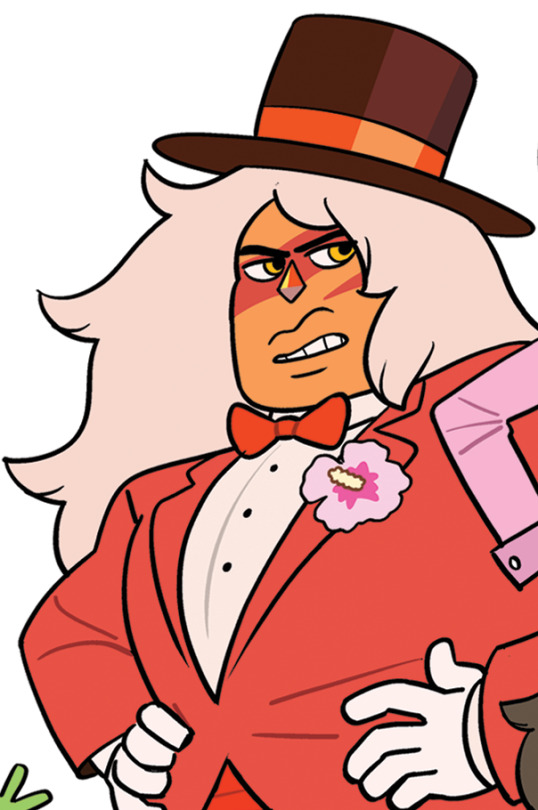
so i was thinking about why jasper would have that particular flower, esp when almost everyone else in the pic doesnt have one at all
and then i realized
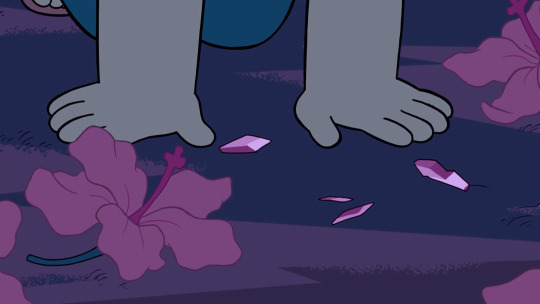

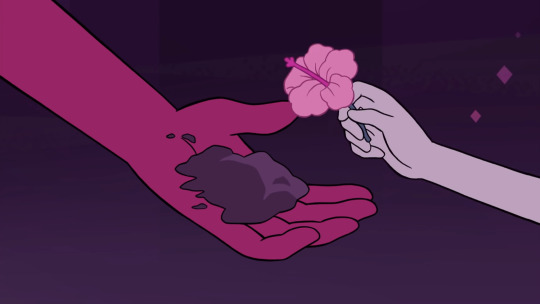
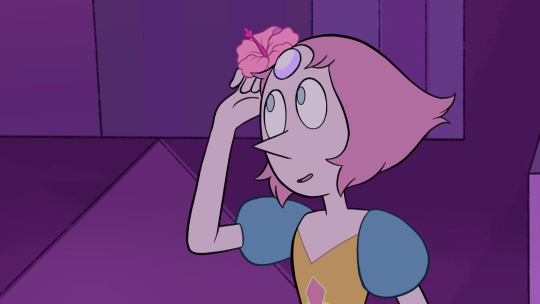
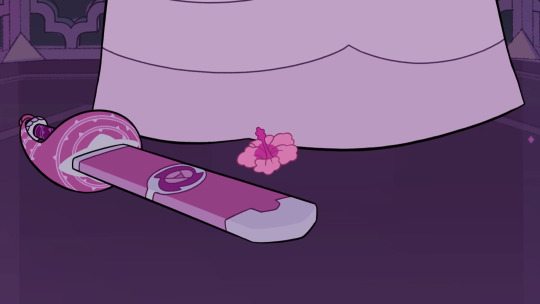
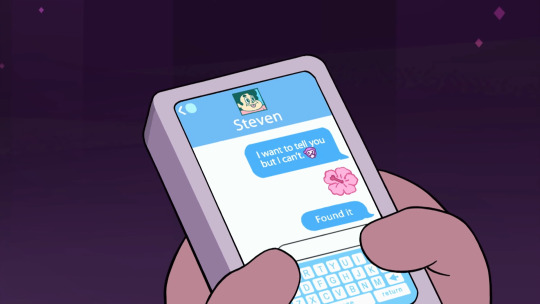
... oh
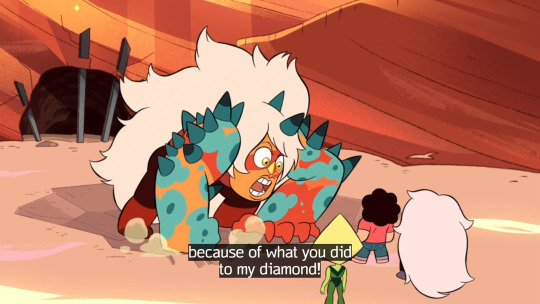
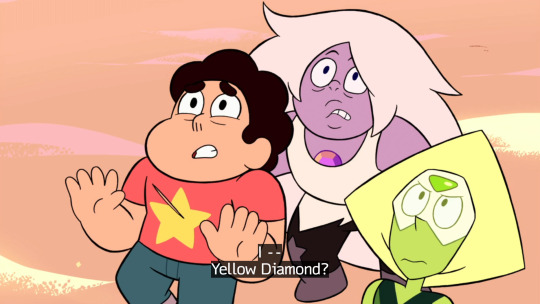

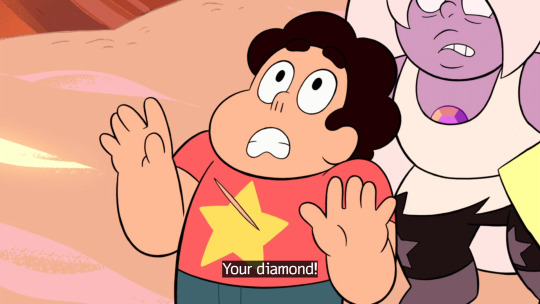
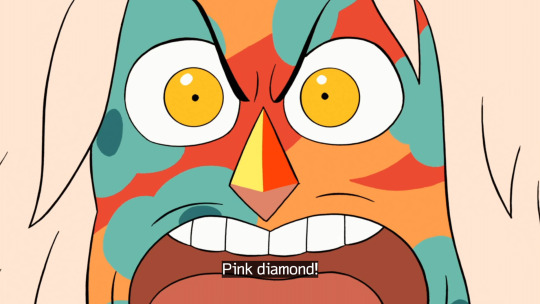
2016 comic con, huh
#steven universe#steven universe spoilers#su spoilers#su meta#su theory#steven universe meta#long post#image heavy post
456 notes
·
View notes
Text
Ep 22-23 Commentary
Ha...I was inexplicably nervous for eps 22-23 and it looks like I was right to be (-: What a rollercoaster. Spoilers below!
I've just come out of ep 23 and uh????? holy shit????? ZYC????
Ok ok but to backtrack, let's do my comments semi-chronologically:
Ep 22:
A carry-over from ep 21 that I have to mention—heck yeah PSJ give WZY hell. She doesn't have all that many lines but she sure knows how to make them count. Also seeing PSJ and WX get screen time just the two of them makes my brain go "yay <3"
Back to ep 22, loved the fake-out sundial ayeee that was a nice Chekhov's gun that also brings the real sundial back into relevance for later. Also me eating up the PSJ and ZYC crumb of an interaction has brought to my attention how starved I am of their screen time together.
This whole ep was a great lament towards the feared inevitable. Every sad downcast look from ZYC, every complicated glance WX gives him. A wonderful, terrible crossroads for these characters. I love that for ZYC especially, it's such an incredible mess of emotion coming to a head. Bad enough that he's come to care about the demon who killed his family and ruined his life, bad enough that he's sworn a blood oath he regrets and tied himself to punishing someone he no longer finds culpable, bad enough that ZYZ's life or death depends solely on his choice and ZYZ is constantly practically begging for death when ZYC wants him to live. How much immensely worse it makes the whole situation that WX is literally ZYZ's soulmate. And obviously the whole team has only grown more and more attached to ZYZ, too. ZYC's personal turmoil aside, how heavy must that responsibility and guilt be? For the finishing blow that only he can deliver to also deeply threaten every other person he cares about? Everyone understands in the abstract what must happen and why, but just like seeing ZYZ lose control firsthand, the gulf between understanding and experiencing is so unimaginably wide. If he kills ZYZ, can there really be no resentment from his friends? From WX?
Also it seems ZYC only wears cloaks so that he can give them to other people lmao
Ah fuck, the farewell drinks. I didn't even factor in how ZYC might not survive the encounter (''': The drama truly was like hm can we possibly give ZYC a worse day than that night his whole fam died? Maybe give him a bunch of new family members and also the blade and the fate and the sole responsibility to potentially irrevocably scar said family members with? And he might die in the process too? (-: haha maybe? (((-:
Oh. Oh. Addendum. I forgot this til I saw it mentioned in another post—ZYC recounting his oath as he watched WX smile when they discussed reviving the tree...I could feel him weighing those words against his own life, against ZYZ's life, against WX's happiness. One way out of this impossible situation is indeed to doom himself. I'm in pieces.
Damn if WX isn't dedicated heart and soul, going into the sundial like that. I'm sad no one could keep her company for those 300 years but also I guess that's kind of an impossible ask (and maybe not survivable for the other non-goddess mortals? I'm admittedly very unclear on sundial time loophole logistics). It would have been nice to see someone offer though, even just to be turned down.
Ooh I like the soul needle fake-out, given this show's penchant for retroactive "actually we had a plan all along" moments. A good subversion of the narrative's own style.
Also I saved this for the end because it doesn't really fit the linearity of my comments but what the fuuuuuuuck oh my god I absolutely flipped out at this scene:
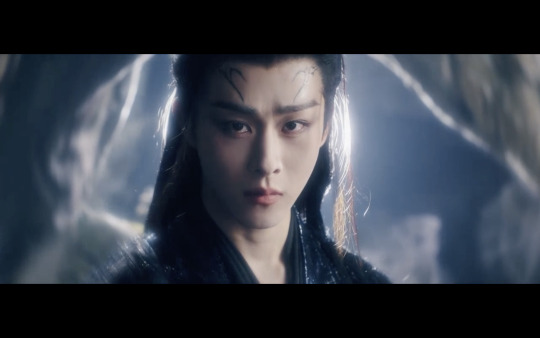
I am at once rabidly intrigued and at the same time not sure if I'll be satisfied with whatever payoff will come for this so I don't want to overindulge in theorizing and setting my own expectations too high. Maybe this is just a fevered hallucination, maybe it means nothing (I hope it means something). But damn!!! What a gorgeous man crazy scene.
In conclusion, ep 22 had some good stuff for me. Plot development and reflection and tension enough that I may have been satisfied with just that one episode. But they gave us two, so onward to ep 23 comments!
Ep 23:
I like how many solid reasons the team has to suspect ZYC being possessed. Even though I withheld judgment during my watch given how quickly the show usually confirms that kind of stuff with a possession mark, just simply casting that doubt made the whole build up that much more intense.
ZYC slowly walking down the corridor with the whole grounds lit a somber and haunting gold—*chef's kiss*
ZYC's monologue to a catatonic ZYZ is so important to me. The closest we'll get to his internal monologue about this whole situation. The kinds of things said when we think there's no conscious listener.
Okay so, having finished this episode and looking back, Li Lun's hands coming up from behind ZYC was not to denote possession (at least in this episode), potentially is a visual from ZYZ's POV, and seems related to the above screencap. I am so, so curious. Once again, I'm stopping myself from further speculation because I want to be surprised but ahhhhhhhhh
PSJ shooting at Ao Yin is so gorgeous. Her action scenes seriously never disappoint—the creativity of her fight choreos!! Also very cool that the whole team is getting to take part in the action, not just the two male leads.
Bai Jiu possession was not on my bingo card but I sure do love that we literally saw the possession take place and I still didn't connect the dots. Good shitttt. Also oh no ): ZYC was telling the truth about the soul needle, he was just tricked ):
Seriously from the Ao Yin case to getting PSJ released to reviving the Divine Wood to getting tricked by possessed!Bai Jiu to making pear soup to fighting ZYZ to fighting Li Lun—when will ZYC get a single goddamn vacation day holy shit.
Also when will WX tear up that contract so ZYZ can stop having a mild heart attack every time he wants to kiss her ): &I love that they saved the 300-year montage for this moment. While their ship doesn't give me brainrot personally, who could be unmoved by that incredible and undisclosed sacrifice? That's soulmatism.
Okay, I'd seen clips of them filming the ZYC and Li Lun fight but damn I did not expect it'd be happening right now!! Right after already taking damage from ZYZ? And my god is Li Lun brutal. The two actors did such an impressive job on this entire fight, what with Li Lun's ease and ZYC's suffering. I really appreciated the extensive hand-to-hand combat after Li Lun literally obliterated ZYC's sword. (Also though, given the origin of that sword, I kept hoping for a flashback to ZYC's brother once it broke, but alas, no dice.) Anyway, the show does not play around about ZYC whump it seems. I was very very shook by that throat punch; that shit legitimately looked like it hurt.
Honestly, I had a hard time with the extended ZYZ and Li Lun conversation at the very end because oh my god someone please heal ZYC lmao. But of course, that's the end of the episode~~
Y'all...check on your local ZYC stans because I was not okay after all that (': I need a heaping dose of comfort after all that hurt, but as always I'm cautious of hoping for much from canon itself. So yeah! Ep 23 was solid, but I would probably be in better shape if today's release just ended on ep 22 ((':
Time to go wait for the cast's Hi6 episode to drop so I can heal my battered heart ;-;
#fangs of fortune#zhuo yichen#tian jiarui#fangs of fortune spoilers#gonna go watch TJR on blind box travel to tide myself over til hi6#thank god he is the literal embodiment of sunshine irl he never fails to make ppl laugh#i assume i will need much of that by the end of this drama#also not to MJTY on a FoF post (MJTY spoilers incoming!) but this level of TJR whump just takes me back to GSJ nearly killing GYZ#I was so hollowed out by that and since GYZ wasn't one of the leads I was trying very hard to resign myself to the fact that he might die#bc of course he was my fave#it ended up okay but he had GSJ to care about him#who does ZYC have ): obvs he has the whole demon hunting team but tbh more and more I see him as an outsider to ZYZ and WX's soulmatism#there's a heavy depth to ZYC's feelings for both ZYZ and WX#and I would say so far it is kind of unrequited in both cases (or at least any reciprocation is comparatively underdeveloped)#rip#why did i go and make myself sadder#episode commentary#meta
34 notes
·
View notes
Text
Oh I thought we will get 13 episodes! That's ok, I really wonder what will happen in episode 12 then. I'm always happy to read your posts, it's very interesting and most of the time so accurate.
Buddy Daddies - Episode 11 - Thought Post - SPOILERS!!!
I fully expect that the fandom is literally losing it over Rei’s, “Kazuki!” and Kazuki’s little gasp outside of the safe house. (I know I still am!)

That scene is also the most intimate we’ve ever seen them be with each other on a physical level. And I actually think that is something that made Kazuki and Rei stand out/feel different, and why I never got “queerbait” vibes from them. In a way, Kazuki and Rei are kind of a prime example of how a lot of people’s defense against queer readings of MLM relationships in anime isn’t wholly accurate, since it usually boils down to: male friendships in Japan are more intimate, guys are more emotionally open, etc.
As someone who worked at elementary schools and junior high schools and have seen drunk male teachers at nomikai and enkai before - they aren’t. Not really. In junior high school there was a lot of rough housing and drunk male coworkers might sling their arms around each other when they are doing some kind of silly act or something - but usually the kind of queer subtext stuff that we often get in anime and manga is on a totally different level and not comparable.
Sometimes it really is subtext (a great example of this would be Nabari no Ou, the mangaka is X-gender and asexual, so any queer subtext you are getting from that series is likely queer subtext), but other times it’s just straight up queerbait. Usually you can feel and tell the difference between the two after a while.
With Buddy Daddies the promo materials never show them half naked wrapped around each other or anything enticing like that. And in-series we see them keeping a common, especially in Japan, physical distance with each other. As the series has progressed though, as Rei has learned how to communicate his thoughts and feelings more, and as Kazuki has learned to let someone in again, we’ve started seeing them communicating with each other more openly.
And while at the start most of their physical closeness has been in comedic scenes, like Kazuki dragging Rei around:
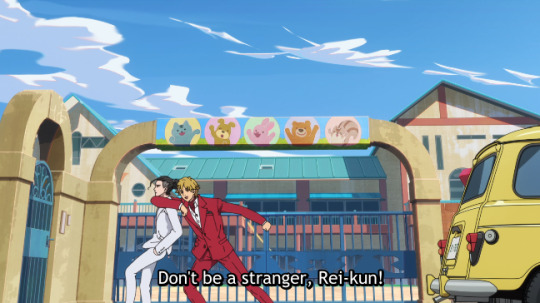
Or when Kazuki freaked out about Miri getting captured by some creep and took hold of Rei’s shoulders:
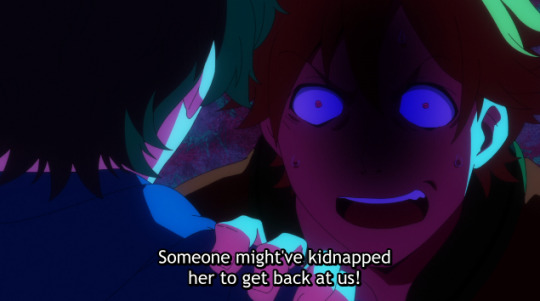
Now, in this episode, we have the two discussing a very important topic. Rei is as opened up as can be and communicating properly. He’s made it clear how he feels about taking the life of Miri’s father and through guilt by association, the life of Miri’s mother now too.
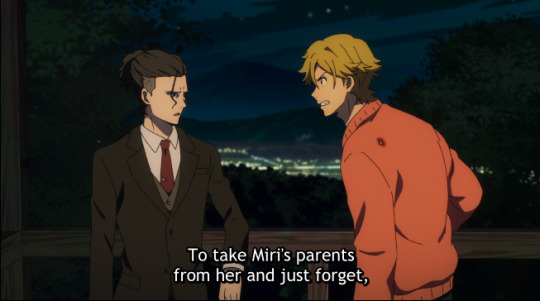
He’s laying himself pretty bear in front of Kazuki and his desire to raise Miri in this scene makes me think of Episode 3 in a way. With Rei in similar, though not exactly the same, role as Kazuki and Kazuki in the role of Misaki.

Rei, like Kazuki, wanted to take care of Miri. Kazuki, like Misaki who sent her away and wanted nothing to do with her, wanted to bring her to an orphanage and then exit her life entirely.

They flash back to Misaki’s death for a reason as well, because Kazuki is relating himself to her words.
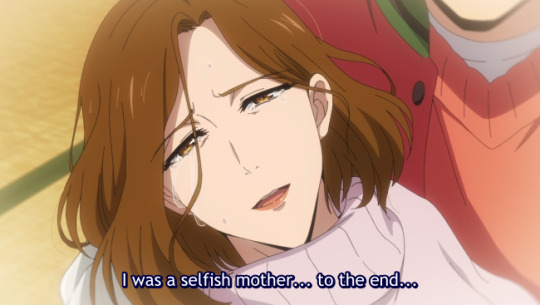
He’s done this before and the two have been both foils of each other (Ep. 3) and parallels of each other, such as in last episode and even in this week’s episode, with Misaki’s bandaged fingers after she tried properly cooking a meal for the first time:

Looking like Kazuki’s after he tried sewing for the first:

Right, in that moment with Rei, Kazuki was thinking, “I’m being selfish too. I want to keep Miri even though it’s safer not to.” The difference though, is that Kazuki, unlike Misaki, has a partner who is equally in the known as him when it comes to the potential dangers of what they are about to do. He also has a partner that is willing to take equal responsibility and care of Miri.
Misaki never had that. Not the first time and the second time, when she came back for Miri in Episode 10, she likely didn’t even know how to ask for something like that. Rei wasn’t fully ready yet then either.
I have more I could say about Misaki, but I’ll save that for another post. In this one, I want to wrap around to the beginning of this post. The things that make this physical touch so intimate between them:

1. It is Rei reaching out to Kazuki. A first, iirc, outside of stuff like him putting his arm out to stop Kazuki last episode, Ep.10 (outside of the daycare)
2. The scene isn’t comedic. It is heated. The two are very emotionally charged.
3. Kazuki’s hand reaches out because he was angry at the situation. He grabbed Rei’s suit because of that built up fear and angry at the situation.
4. But Rei wraps his hand over Kazuki’s to show connection. He uses it to add emphasis and make Kazuki feel his words: “Think. What can we do to help Miri?” Rei has always been the one to calm Kazuki down. When Kazuki goes over the top, Rei reels him back in, like here. But this was the first time he had to physically reach out to Kazuki and touch him in order to make that point and actually bring Kazuki back down from the clouds and back into the reality of their situation and what they can do.
5. Finally, during this talk, when Rei says, “We’ll make Miri happy!” Kazuki doesn’t just think about Miri, he thinks about Yuzuko too. Rei says we’ll and Kazuki is fully acknowledging that.
This time, unlike in Episode 3, where they both decided to be Miri’s papas separately, they are deciding to be her papas together. There was a shift in their dynamic again, just like there was in Episode 3.
I noticed this last week and was wondering how this would play out in today’s episode, but we are seeing parallel episode structure with Arc 1 (Episodes 1 - 5) and this final arc (Episodes 10 - 13). This final arc is one episode short though, so this week’s episode was like a paralleled combination of Episodes 2 and 3.
Putting the rest under a Read More due to length.
Afficher davantage
#Buddy Daddies#BD#KazuRei#Kazuki Kurusu#Rei Suwa#Miri Unasaka#Misaki Unasaka#Kyutaro Kugi#BD spoilers#Buddy Daddies spoilers#meta post#thought post#analysis#image heavy post#long post
799 notes
·
View notes
Text
The Vavoom: Or, when the show's hinting Crowley & Aziraphale first kissed
It was not in 2.06, if that makes you feel any better?
Meta/theory hybrid stuffity stuff below the cut. As always, all interpretations are valid. This isn't meant to offend anyone who sees things differently. Post contains spoilers for the films 'Kiss Me Deadly' (1955), 'About Time' (2013), 'Love Actually' (2003), and 'Four Weddings and a Funeral' (1994). Apologies that this took a few days. Life's been wild this week. Let's dive in...
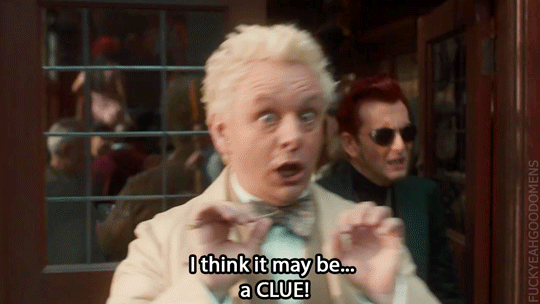
Right. So. The Vavoom...
I feel like most of us, by this point, are probably in agreement that Crowley is not talking about something he saw in a Richard Curtis film when he talks about his plan to help The Shop Lesbians to fall in love... and that, if he's not talking about something he saw in a movie, then he's talking about something he experienced... and yes, sure, absolutely Crowley has been on Earth for 6,000 years and could have vavoomed with basically anyone who has ever lived at this point as well as one semi-sentient car and even the world's once only-remaining unicorn but... we all know he's talking about Aziraphale. So this is about unraveling what the show presents as Clues to this end and using those Clues to solve for x and see if we can prove that Crowley is talking about Aziraphale and then figure out when this Vavoom happened with the information the show has given us so far... and the good news is that we can do all of those things so here we go...
The first thing to do is to eliminate the Richard Curtis films. Let's just start with Crowley saying that he saw his whole vavoom moment in "a Richard Curtis film." As someone who has seen a frankly embarrassing number of Richard Curtis films, I can tell you that this is a very amusing misdirect from a writing standpoint. It is amusing because it's a wink of sorts towards the same problem that comes up when you try to find The Vavoom on the GO timeline based on what the show's presented so far. What is that problem? It's that-- at first, cursory glance-- no one GO scene or Curtis film seems to have everything Crowley describes. Don't worry, though, because we actually do have enough information to find the lone caraway seed beneath these three cowrie shells here. You'll be Aziraphale-voicing an "a-HA!" very soon. :)
There are only two Richard Curtis films that feature elements Crowley lists as having occurred during The Vavoom: 'About Time' and 'Four Weddings and a Funeral.' The Awning of a New Age scene in GO actually winds up an homage of sorts to 'About Time', as it is referencing it pretty heavily. However, there is no vavooming in 'About Time'; meaning, there is not this gaze-to-kiss moment that Crowley is talking about. A wedding reception tent collapses under heavy rain and soaks several supporting characters in the film, much like how our supporting characters Nina and Maggie get soaked by too much rain causing the awning to collapse. There is no gaze or almost-kiss or kiss before it. There are other canopies-- umbrellas-- but no one gazes or kisses under one. So, Crowley did not see The Vavoom in 'About Time'-- but that particular Richard Curtis film might have been the one in Crowley's mind when he quickly latched onto Richard Curtis films while speaking with Aziraphale in the pub.
As a result, thinking about his conversation with Aziraphale while trying to craft his Shop Lesbians Vavoom might have actually caused him to over-weather and cause the awning to drench Maggie & Nina. So the joke there is more that The Original Vavoom of which Crowley is speaking in the pub scene is something that really happened and had an element or two in common with a scene in the Richard Curtis film, 'About Time', which also features Bill Nighy (see: 'Love Actually' stuff below), whose mannerisms Crowley seems to like to emulate at times. As a result of seeing the film and thinking about how it *wasn't* like The Vavoom-- the canopy collapsing, the lack of an actual Vavoom in motion prior to this, all of that disappointing Crowley greatly when he saw this film lol-- Crowley ironically then says he got the whole idea of The Vavoom from a Richard Curtis film... when, in fact, *the distinct lack of Vavoom* in the film was what Crowley remembered from it... and then, upon thinking of the pub discussion when trying to start an Awning of a New Age for Maggie & Nina, it accidentally became part of his miracle, causing him to over-Weather and, kind of hilariously, substituted the kiss Crowley was trying to incite with the collapsing awning scene from 'About Time'... the film then disappointing him all over again lol.
The other Richard Curtis film that is relevant is 'Four Weddings and a Funeral.' You might be familiar with the scene-- its ending scene-- just from cultural osmosis as this point, even if you haven't seen the film. Hugh Grant proposes to Andie MacDowell in the pouring rain. So, the big problem with this scene is that there is no canopy. None. Whatsoever. They're soaked through. We never see them go inside. They look into each other's eyes and they kiss but it's raining on them the whole time and Crowley is really specific about his canopy requirements for Vavooming. This scene is also wrong because it's a proposal between characters who have known one another on and off for years and have a more extensive history, whereas Nina and Maggie are much earlier in a potential relationship and The Vavoom Crowley talks about is an intense gaze into a first kiss. That said... just as how 'About Time' ties to Nina & Maggie's story, there are some 'Four Weddings'-y elements to Crowley & Aziraphale's relationship, in that their story also covers them meeting up through different points in time and such. 'Four Weddings' was also the first mainstream, hit rom com to openly feature queer characters in supporting roles so it's a strong one for GO to be referencing... but, ultimately, no Crowley-described Vavoom scene in sight.
Finally, there's 'Love Actually', which doesn't actually have a single element in it that pertains to The Vavoom but I'm throwing it in here because I'm just looking at all GO ties to Richard Curtis films at this point. 'Love Actually' features Nina Sosanya (GO's Nina, of course) as a queer-coded character and, in GO, David Tennant has a few scenes where he seems to be channeling Bill Nighy's Billy Mack from 'Love Actually' in S1. (Tell me Crowley's not doing Billy Mack's walk when they cross the street to the bookshop in Eleven Years Ago in S1 lol.) For those of you who have somehow avoided seeing this movie lol, Billy Mack is an aging rock star who is the best character in the film and heavily queer-coded. In S2, there's also some Big Bill Nighy Energy in the "we'll just to have to make it worthwhile then" bit with Muriel in Heaven and also in the way he chuckles in the "I *was* there, you see" moment with Gabriel. Also probably worth mentioning that, in 'About Time', Bill Nighy plays the dad of one half of the main couple in the movie and his role is to teach him how to live life and this involves pursuing the woman he is trying to marry throughout his ability to fall through time. So, Bill Nighy is basically playing the S2 Crowley of 'About Time' while the main couple of that film parallels Maggie & Nina, in that he's setting up the scenario for the couple involved to get together. Nothing in the film, though, is as overt or contains elements that match The Vavoom, other than the collapsed awning, as we got into above.
So mah point is dolphins that while there are a couple of Richard Curtis films that contain bits and pieces of what Crowley is talking about, there isn't a single one that has anything really remotely close to the, uh, extremely specific scenario he was detailing... so now we have to look at just what the hell Crowley's on about, exactly... and for this, we are, surprisingly, going to wind up looking at a very different film from any by Richard Curtis-- 1955's classic film noir, 'Kiss Me Deadly'. Why this random film, you say? Because it's actually not at all random to GO S2. It's the origins of the phrase "vavoom"... and S2 of GO contains a multi-episode homage to the film.
'Kiss Me Deadly' is, tonally, very different from GO as it's pretty dark film noir but it has a plot you might find a little familiar. One night, driving down a dark road, the main character picks up a hitchhiker who has lost her memory. After she's murdered, the film revolves around the main character-- a private investigator-- and his lover/partner investigating the case to try to solve the mystery. GO's episode "The Hitchhiker" opens with a plot and visual homage to this film when Aziraphale picks up Shax in The Bentley and obviously S2 contains a plot surrounding a mystery related to a character who has lost their memory in Gabriel. I'm going to do a separate thing that is a deeper dive into this with particular emphasis on how the lead characters relate to Crowley and Aziraphale at another point in time because it crosses into too many other things to fit it into this one at the moment but the reason why I bring the film up now is because of its ties to the phrase "vavoom."
"Vavoom", alternatively spoken as "va va voom" and containing the same meaning, is thought to have originated in a cartoon in the late 1940s but its use in "Kiss Me Deadly" in 1955 is what pushed it into popular, cultural use and knowledge. In the film, there's a character named Nick, who is friends with the two leads (the Crowley & Aziraphale-paralleling Hammer and Velda). They have nicknamed him "Va Va Voom" because he says it so often. Nick is an auto mechanic who works on the leads' car-- yes, there's a Bentley parallel lol-- and it is his use of the phrase that made it one we are familiar with today. But what does it really mean exactly in terms of this scene in the pub?
Without going too far down the road that we wind up in another meta about wordplay and symbolism in S2 here, the show is doing things related around the word 'passion' and all of its various meanings. It begins with Aziraphale referring to Maggie's feelings for Nina as "a pash"-- which is British English slang for "a crush" or "an infatuation". It comes from the word "passion"... but the word "passion" actually means something much different. "Passion" is very specifically romantic, erotic love when used to describe a relationship. It means enthusiasm when about a hobby or the like-- Aziraphale will get the neighbors to come to the meeting/ball by negotiating their commitment based on things they're passionate about-- Mr. Arnold and Doctor Who, Mutt and the history of magic. Finally, S2 is tying a lot of this passion-related plot to *The* Passion-- as in, The Passion of the Christ, or the Christian phrase for the death and resurrection of Jesus Christ. Why is it called 'The Passion' anyway? Because the Latin root of 'passion' is 'pati', which actually means 'to suffer.' Looking at all of this and how the show pairs up scenes with different types of passion is a whole other meta. I'm bringing it up here because of the relationship between 'passion' and 'vavoom'...
"Vavoom" means voluptuously sexy. It means passionate. Something having a sense of "vavoom" or "vavavoom" means it is either suggestive of or is sensually pleasing. In GO S2, Maggie & Nina represent the pash use of passion-- the new love, the crush-- while Crowley & Aziraphale are the show's example of passion in its fuller, richer meaning of romantic, erotic love. So now that we eliminated the idea that Crowley is talking about having seen an example of this vavoom he's talking about in a movie-- I mean, 'Kiss Me Deadly' is totally a movie Crowley saw once so he might have first heard the phrase in it, like many people did but there's no vavoom itself the way Crowley describes it in the film, just the phrase-- but yeah, now that we've eliminated the idea that Crowley got his idea from a film, we can say with relative ease that he's talking about something he personally experienced. I think we can all agree that if he did, it was with Aziraphale and the purpose of him bringing it up in the scene is not just as a suggestion to solve the issue of needing to matchmake The Shop Lesbians but as a way of being seductive towards Aziraphale.
This is also part of 'Kiss Me Deadly' in that Crowley here is the Velda to Aziraphale's Hammer. Hammer is preoccupied with the mystery. Velda tries to help him solve it but is also seeking his romantic attention the whole time and being rebuffed in favor of the mystery. It's darker in the film, as you'd probably expect, since it's film noir, and Aziraphale is actually subtly playing back in GO S2. In GO, it's mostly played off as Crowley, kicked out of bed since the religious family are in the guest room lol, continuously making overtures towards Aziraphale to torment him a little for the whole Gabriel situation but also mainly just because he likes to and he misses him. (It has been, like, maybe 18 whole hours lol.) He continues it into later in the day when Muriel is in the bookshop and Aziraphale is a little more overtly playful then but he is in the pub scene as well. All of this also ties into the fact that Aziraphale wants to drive The Bentley but again, that's a whole other meta. Going to stay focused on the kiss here...
So what we're saying is that, in the scene in The Dirty Donkey, Crowley does that whole lean and the sexy hands and that super posh voice he does from time to time to seduce Aziraphale, and describes their first kiss back to Aziraphale when asked to come up with a romantic solution to help their neighbors realize they are in love. Specifically, Crowley says this:


Whew. *fans self* Jesus, Crowley... No wonder why Aziraphale thought you could help The Shop Lesbians. That? Was romantic...
The key thing I love about this is that while everything he says lends itself to the idea of a kiss, he doesn't actually explicitly say that until the later scene in the back room when Muriel is in the bookshop-- the "one fabulous kiss" part. It's evident later on when he explains the plan to Jimbriel and when he puts it into action that his intent is to trigger a scenario that might prompt Maggie and Nina into kissing and when the awning collapses, he feels like he failed at the overall Vavoom. He did, however, see it working from across the street, such were the fireworks, when they looked into each other's eyes and what's sweet and also very hot about this scene in the pub is that the looking into each other's eyes is the key bit of The Vavoom to Crowley. The kiss is what happened as a result of looking into each other's eyes. The romance of the gaze and the passion of the kiss = The Vavoom but the latter without the former isn't the whole rapturous, perfect moment and Crowley is into this moment. He's still weak in the knees over the thought of it.
And what he says happened in it? They looked into each other's eyes and realized they were made for each other? Crowley thinks that. He says that, flat out, to Aziraphale. Crowley. Who was abandoned by the God who was supposed to love him believes that same God created he and Aziraphale for each other. That they're fated, destined soulmates. And that they both knew it, in that moment when they were taking shelter from a sudden rainstorm together, under a canopy, and they gazed into each other's eyes and then
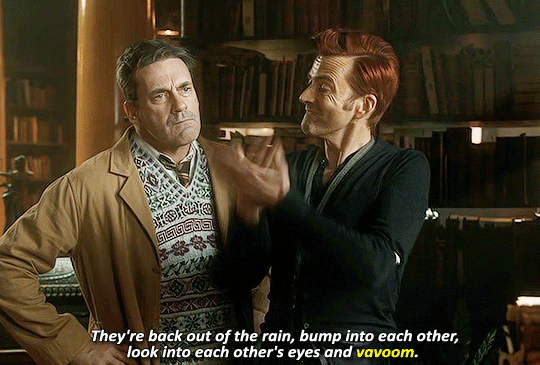

Yes, I am aware that he says "humans" in that bit in the pub scene. He's referring to Nina & Maggie but also he and Aziraphale have a tendency to refer to their love for one another in human terms in different scenes throughout the series, which is probably a whole other meta and *refocuses on finding this damn kiss here*...
So Crowley-- while heavily emphasizing the words "together" and "canopy", both for maximum sexiness and to lead us in the correct direction lol-- tells us what's needed in this scene, right? We need a sudden rainstorm, a canopy, them wet from the rain and taking shelter, Crowley's glasses to be off or he's in a situation to be able to take them off (ironically, unlike he was when he was in the pub while he's talking about all this erotic gazing), and then we have all this gazing into a very vavoom-y, very passionate first kiss.
So, what scenes seem at all remotely tied to things Crowley describes for The Vavoom? There are three scenes that jump out immediately-- and it's none of them lol. They *are not kidding* about quite literally 'three cowrie shells and a lone caraway seed'. There are three scenes that they want you to think could be connected to this and be distracted by to complete their sleight of hand trick. They want you to look towards Aziraphale's hand and not up his sleeve, so to speak.
So the three cowrie shells scenes here are Before the Beginning, Eden, and the Job minisode. Why? They are the scenes that involve Crowley and Aziraphale and some form of a canopy, which is one of the two words in Crowley's whole Vavoom moment that he heavily emphasizes. So it's not Before the Beginning and it's not Eden and why? Because we're missing the other word Crowley heavily emphasizes-- *together.* Crowley and Aziraphale took shelter from a sudden rainstorm *together* under a canopy. That's the set up. But Before the Beginning and Eden-- the first scenes our minds run to-- are not this because they are sheltering *one another* but not sheltering *together*. One of them is exposed to the rain each time.
There's an additional possibility that is thrown into the mix that is tied to these two scenes, which is the S2 announcement poster-- the one that features Crowley and Aziraphale on Whickber Street in the rain. That one is also out because Crowley is being sheltered from the rain by Aziraphale with a tartan umbrella (ridiculously adorable, I agree lol)-- but they're not both sheltering together. That one feels like it was designed just to fuck with us, especially because Crowley's hair in it is, for some reason, at Eleven Years Ago length in it. It's almost like it exists to both be cute and to, after the season is over, make us go wait... was it then? (It was not then.) More distractions. Ok, so, then what about the Job minisode?
Is it ox rib night? This seems to have some elements at play-- there's a roof and a storm and them together and all-around kiss vibes-- but it's actually not this, either. That said? Job is connected to it in a big way and helps prove my theory here so we're going to come back to it. I'll eliminate it here by pointing out that when Crowley defends The Vavoom as a possibility for Maggie & Nina to Aziraphale, he says "get humans wet and staring into each other's eyes" and "humans" in that bit is them, even if they are not fully. This eliminates the Job minisode as The Vavoom because it confirms that Crowley & Aziraphale did get wet as they went to shelter from the storm. In the Job minisode, they never go out in it. So, Job is out, too.
Ok, so then how do we find the one scene that unlocks this and points us towards the answer hidden in plain sight in front of us?
What is the one scene that really should tell us more about The Vavoom? How about the one wherein Crowley partially recreates it?
The Awning of a New Age is the lone carraway seed. Maggie & Nina paralleling Crowley & Aziraphale. What can we learn about what happened with Crowley & Aziraphale from what happened in this Maggie & Nina scene?
We already know that Crowley feels like he partially failed at recreating The Vavoom for them. It was meant to lead into a kiss and then the awning collapsed. That is what is different from Crowley & Aziraphale's first kiss but Crowley was delighted by the gazing, which we already know to be the very important bit of this here. Off of this, we can conclude that there's obviously a parallel of this bit for Crowley & Aziraphale and this is where the parallels in the scene stop. That means that what happens *before* the gazing moment in The Awning of a New Age scene is important because that's the parallel. So, what's happening while Crowley spots them together outside and starts up the rain? They're talking, right? And what are they talking about?
They're talking about one of them-- Nina-- having a partner who is unreasonably upset. Nina is anxious about it. She doesn't blame Maggie for it, as it's not Maggie's fault. It's also not Nina's own fault and what Lindsay wants from Nina is confining and abusive. Lindsay, we learn, is cruel. We decide in this scene really how much we don't like Nina with this woman and that we want her to be with nice Maggie who is sweet and supportive and is over the moon for her.
On the surface, this would seem to be absolutely nothing like any Crowley & Aziraphale scene we've ever seen, right? Fooled by what is on the surface-- modern lesbians in London Soho, one of whom has a romantic partner-- this seems to be a plot Crowley & Aziraphale have never had. Except, that it's not. It's a parallel to one you'll remember.
One, paralleling sentence here for you...
God's a bit tetchy...
Awning of a New Age unlocks that Lindsay being unreasonably angry and dolling out insane punishment for no actual misdeeds is a parallel to God during The Flood. God was Aziraphale's Lindsay-- the unseen, abusive partners, sending down their words and marching orders and causing distress. Crowley approached Aziraphale like how Maggie approaches Nina. Aziraphale half-heartedly tries to defend God the way that Nina half-heartedly tries to defend Lindsay but both pretty much give up in the face of Crowley's and Maggie's sane responses and support. The agreement that the present situation-- Lindsay about to abandon Nina, God about to abandon her creations in The Flood-- is horrible and unjust. They connect over the lack of justice. The Flood scene we saw ends as the rain begins, with Crowley and Aziraphale both looking up as it starts to fall.
Maggie and Nina get further-- they get to the first half of The Vavoom, in parallel. We haven't seen that yet with Crowley & Aziraphale. (Maggie & Nina also didn't have to go stop and save a bunch of people first lol.)
So how do we know that The Flood was the first kiss?
How do we know that Crowley and Aziraphale first kissed in Ancient Mesopotamia in fucking 3004 B.C. and have been vavoom sorted gone on each other ever since?
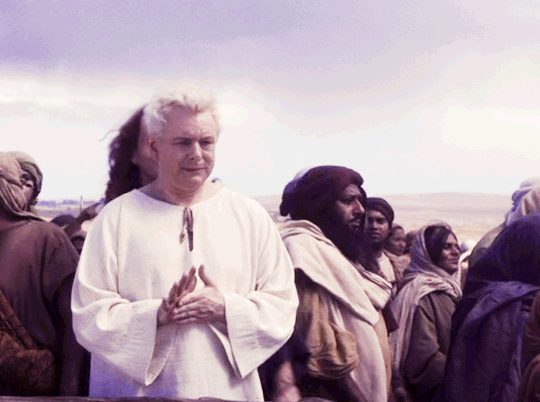
Because it happening in the aftermath of saving lives in The Flood would then mean it meets every one of the elements Crowley describes. They get wet from the storm. They will work to save everyone, which is evident from Aziraphale being dead fucking certain in the Job minisode that Crowley was a sweetheart who wasn't going to kill any goats or kids. How would he know this for sure? Saying that what God was doing was terrible in The Flood scene isn't enough for Aziraphale's surety by Job. That means that Mesopotamia and The Flood is the first time they teamed up. It means that Crowley saved people and animals during it. It more than likely means that he did so in a way similar to what he does during the Job minisode-- he transformed them into something that could survive the storm, probably rocks or something. (Big Medusa vibes lol.) But what would happen then? Crowley and Aziraphale would have to *stay through the storm to turn the people back*, right?
So, they'd need to seek shelter from the rainstorm. Under a canopy that could survive the storm. One they can both step back under and bump into one another beneath. Most likely, it's an actual canopy in original meaning of the word-- the shelter of trees. I think one of them (Crowley) bolted afterwards, based on the Job minisode, which we'll get to again in a second, and from under a canopy would be the easiest way to just be able to leave during a storm. (They did not spend the Biblical 40 days and 40 nights under that canopy or they almost certainly would have wound up having sex, which the show is suggesting in other scenes didn't happen for awhile after this which is also another meta lol.) But there's also another reason for trees that kind of cracks me up.
Remember when Aziraphale comes back from Edinburgh in S2 and, before he left, they had their whole Our Car/Our Bookshop thing and Crowley's been peeved for a day now over how Aziraphale got to go adventure in The Bentley and he got to wear a cardigan and babysit their former attempted murderer? And about how what he's really playfully irritated over is that he keeps trying to use Operation Shop Lesbians to turn Aziraphale on by mentioning their Vavoomy first kiss and Aziraphale is, kind of hilariously in retrospect, just totally tormenting him by barely indulging him on it? What happens when Aziraphale comes back from his trip?
Crowley-- genuinely-- says "there you are-- I was worried something had happened to you" and he's off-camera for a moment as he does so and the camera is on Aziraphale, who kind of seems like he would like one of Crowley's kisses about now. But what does Aziraphale get in place of where a kiss could have gone?
A face full of plants lol.
In their box, so that when he handed them to Aziraphale, they hung over his head like a canopy.
Don't wanna talk about The Vavoom, angel? Fine. You're just getting the trees. Mwah. *goes to his car and is all did you misssssss me kissy face*
Aziraphale, in old married bitch mode:
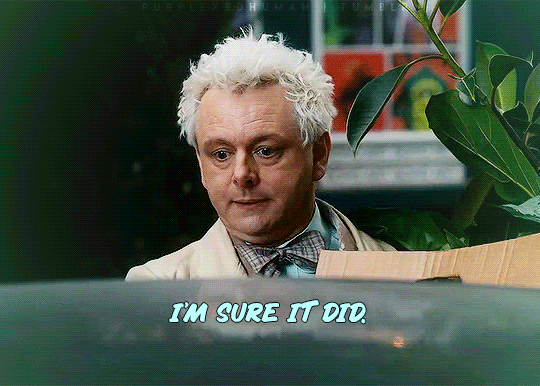
Finally, there's that Ancient Mesopotamia is, chronologically, the last scene so far in which Crowley is not seen wearing glasses, which is essential because Crowley-- while wearing his glasses in the pub lol-- describes the key bit of The Vavoom as involving staring into one another's eyes, which Crowley & Aziraphale can't do if Crowley has his glasses on. Since Crowley wears his glasses in approximately 87% of Good Omens, it means that the answer is in a scene where he's either not wearing them at all or could be seen as able to take them off. Mesopotamia meets that criteria. But there's still one more thing that can really hammer home the idea of this The Flood, Part 2 being their first kiss and that's going to be how we end up back at the Job minisode again.
Go back and think of the Job minisode again but now with the idea that the last time they saw one another-- ages before it-- they shared this moment of wildly passionate vavoom and look at how it recontextualizes the entire minisode.
Start with when they first see each other again. Where did *that* Aziraphale come from? He's teasing him.
The Aziraphale in Before the Beginning and in Eden and in the first bit of The Flood that we've seen is more anxious. He's not afraid of Crowley and he's definitely attracted to him but he's distracted by the dangers of what is happening while they're talking. Suddenly, he jumps from the Aziraphale of The Flood to the Aziraphale of the Job minisode. This one is flirtier. This one is literally like all so you never called-ing Bildad the Shuite lol. He's all "last time I saw you was... The Flood?" like he doesn't know and Crowley is all tight nod ohfuckit'shim and also ohfuckit'shimhavemissedhimsomuch and hiding behind his sunglasses-- Bildad is the first appearance of the sunglasses, chronologically, so we go from the Vavoomy gaze to Crowley hiding his eyes... this then all moves into the courtyard scene after a few moments...
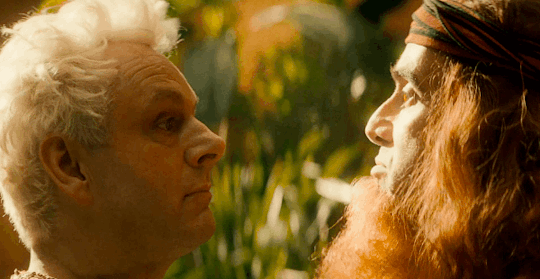
Oh, what's this now? The only scene in the whole series in which Aziraphale asks Crowley to take his glasses off? And he does? So quickly-- intentionally-- that his expression from before is still on his face and it's just nothing but naked want like he's saying oh you wondered how I was looking at you from behind these this whole time? yeah, it was like this... Aziraphale is straight up asking for more vavoom. Take the glasses off. Look me in the eye and tell me you want this and yeah, sure, they're talking *on the surface* on *one level* of their conversation about whether or not Crowley is exhibiting serial killer tendencies and wanting to kill small animals and kids but, really, this scene is also the formation of their coded way of speaking to one another. Crowley's "I want to. I long (pause) to kill the blameless kids of Job the way I killed his blameless goats" and then lifting just enough of the magic to let Aziraphale see that he had actually not killed the goats at all but had actually faked their deaths, indicating that that was his plan for saving the kids as well... Well, it also means that *all* of what Crowley just said to him was coded. That's the weird pause after "I long" that breaks it into two sentences. It makes the second level of their conversation that Crowley whipped off his glasses, gazed into Aziraphale's eyes, and said I want to, I long... meaning, I want you, I want to kiss you again, I long for you...
But the bit of the Job episode that sells me on The Flood being The Vavoom is actually the bit just after Crowley miracles himself, Aziraphale, the kids, Jemimah's pot (because he's so not a serial killer, he saved the damn pot lol), the wine (because fuck that little Influencer Brat of Job-- Crowley's not about to kill a kid but he absolutely will drink the last of his wine for treating Aziraphale like a whore lol), and the food down to the cellar and started iguana-ing the kids. Why this bit? Because Aziraphale is fucking giddy and is just tormenting the living fuck out of Crowley.
He's all "I knew it!" and when you first watch the scene, right, you could think he means he knew that Crowley would save the kids. Yet, he already knows that by this point-- that's what the courtyard scene was. That's why he's yelling that he's "QUITE SURE" when Crowley asks him if he is (and calls him "angel" for the first time when doing so) while he's setting everything on fire just a moment before. Obviously, Aziraphale is happy that Crowley didn't kill the kids but what he's all I knew it *smug smile, actually fucking wiggling with flirty joy* about is that Crowley wanted to be alone with him again and would find a way to make it happen because what's the plan? The one that Aziraphale is totally teasing him about?
Aziraphale is going on about how oh, this is *Satan's* big plan, huh? A *big storm*? He loves every minute of it and he also really loves Crowley getting very close to him-- kissable close-- and being all "ooh aren't you brilliant?" when Aziraphale was acting smug. When did Crowley get that comfortable getting that close to him?
But yeah, Aziraphale loving every second of Crowley saving the kids, turning them into sightless/soundless iguanas, and sending a storm over the land for the night while keeping the two of them dry in a little cellar canopy so they can be alone together again-- essentially, repeating a version of The Vavoom scenario, as he'll still be trying to do millennia later... Aziraphale thought that very romantic and had no problem flirtily teasing the hell out of Crowley for it. Crowley's game is as ancient as Bildad the Shuite lol.
So yeah, what we're saying here is that there's a The Flood, Part 2 and that it's likely in S3. I actually wouldn't be surprised if it opened S3, since the first two seasons are opened with the other canopy-themed firsts-- the two first times they met, really, in Before the Beginning and Eden, both with the wing canopy-ing of one another-- so S3 could be the tree canopy and their first kiss. The Flood also seems likely to return because of how it ties thematically to the whole end of the world of S3's Second Coming plot.
One aspect of this theory that I really like is also that it means that Crowley was more female-presenting during their first kiss (which also goes along with the feminine energy sometimes associated with the phrase "vavoom"/"vavavoom") but also that when they next see one another in the Job minisode, Crowley is the more male-presenting Bildad the Shuite... and Aziraphale is really just into all of it. He's just into Crowley, full stop. We already know he is but I like the idea of it tied to their early days and showing it unfold a bit and how it's just all fine by Aziraphale, who just loves this being and is happy to see them and get to be alone with them again. It's very sweet and romantic.
I guess the last thing to say is that if this is true, we're all going to have a field day redoing the psychoanalysis of this bit below, aren't we?

#ineffable husbands#good omens#good omens 2#good omens meta#aziracrow#crowley#aziraphale#good omens theory#vavoom
1K notes
·
View notes
Text
clarence and his counterparts: man or monster?
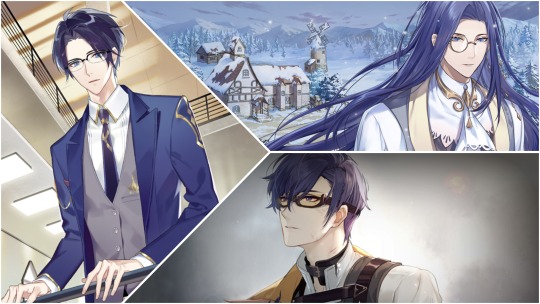
So we were talking about Clarence’s new android SSR (Faint Night Light) in the LBC discord server, and it got me thinking about the monster allusions that seem to be a common thread across Clarence’s main stories. Then we discussed the diary entries from his White Day event, and it occurred to me that this monster imagery also ties into his modern-day counterpart – and with that, this post was born.
In other words: is Clarence a man, a monster, or somewhere in between?
[ SPOILERS: Clarence’s main stories and Chrono Theatre diaries. This meta analysis is structured as story-specific sections, namely Godheim, Eden, and the modern world, so you can skip over the world(s) you haven't read yet. No Awakening spoilers, don't worry! ]
- ☽ -
Godheim: Archmage Clarence
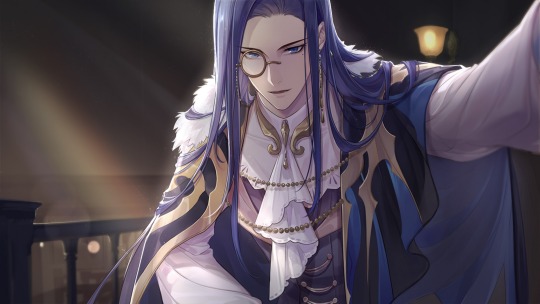
First, let’s talk about Godheim Clarence. As the Archmage, he bears a heavy responsibility upon his shoulders – to oversee the Magi Tower, to fight the Glacial Butterflies, and, ultimately, to protect the country and its people.
In order to fulfil this duty that he has chosen to undertake, Clarence seals his heart and shuts others out. He denies his emotions, and resents himself for having these emotions, to the point that he disparages MC for “[acting] impetuously” and belittles her capabilities when she shows concern for Amelia’s wellbeing. Archmage Clarence’s impassivity is his shield against the emotions he views as a hindrance.
Yet he was not always this way. Clarence is a casualty of cruel circumstances, a tender soul torn apart by trauma. When MC is confronted with the truth of the mages’ magic, having witnessed a mage die before her very eyes, she notes that “[there] is no pain or compassion on Clarence’s face,” because “[this] is a sight he has seen all too many times before.” Decades of watching his fellow mages succumb to the Glacial Butterflies that nest inside them, and decades of having to end the lives of mutating mages under his purview, have conditioned Clarence into numbing his heart to such pain. How else could he have stayed sane, after a century of bearing witness to suffering wrought by his own hands?
Archmage Clarence’s disposition is initially described by MC as an “[icy] presence,” but this is the facade that he projects as a defence mechanism, not his genuine self. Clarence is so accustomed to the chill of the Glacial Butterflies within him that he has taken on the frost as a personality trait, believing that his frigidity defines him. He does not view himself as a human capable of warmth; instead, he thinks of himself as a mutant, as an icy monster.
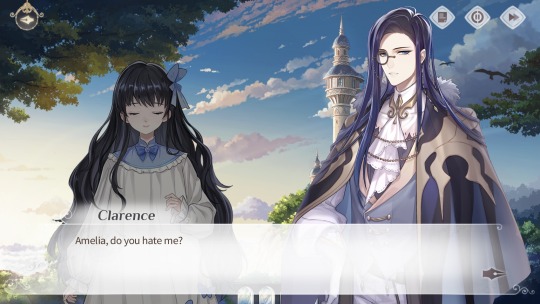
Even so, Clarence cannot deny his innate inclination towards kindness. When he notices that Amelia isn’t feeling well, he tells her to sit in the carriage. When Amelia’s temperature drops, he casts a spell to warm the shivering child up, even as he grumbles that he’s wasting his time and magic. When Amelia’s death is imminent, he tries to send her off in the gentlest way possible, then grants her final wish by conjuring a connection to the water mirror. Clarence may insist that he does not care, but his actions reflect his compassion.
It is this very kindness that steers him towards a path of selfless sacrifice, for the sake of his country and its people. The life of a mage may have been forced upon him, by the man that gave a gravely injured child no other option but the potion that would transform him, yet Clarence learns to harness his power for good. He spends his youth eliminating Glacial Butterflies and protecting the village of the snow plains, and despite the harsh conditions of the path he now treads, he does not hold a grudge against the family that sold him off and thrived in the resulting profit. Instead, he returns to check on them from afar, and when an onslaught of Glacial Butterflies attack, he protects them with every last bit of energy within him.
Still, his family’s betrayal left an indelible mark on his psyche. Back when he’d been given the potion, he’d resolved to succumb to his injuries rather than drink it. Despite his instinctive desire to live, MC notes that his “will to live [had been] virtually non-existent,” because there is “[no] despair greater than being betrayed by your own family.” The young Clarence had not seen a reason to live, when his family had forsaken him. It is only when MC saves him, urging him to live on, that he resolves to survive and repay this debt. Each time MC encounters him in her voyage through time, he is on the verge of death, and each time, his dwindling will to live stems from his despair over those he could not save. What ultimately keeps him alive is the vow he swore to his saviour.
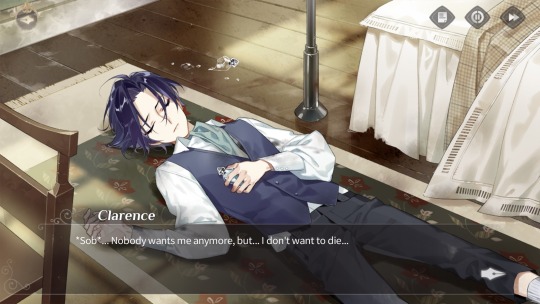
This characterisation is one that carries through his immortal lifespan. Clarence does not live for himself; he lives for others. Whether that means risking his life to defend a village, or sacrificing himself in a ritual to save the country’s inhabitants, the underlying premise is the same – Clarence lives for the person who saved him, and for the promise he made to them. He allows others to form negative opinions of him based on the assumptions they’ve made, in order to keep the secret of the ritual and the Glacial Butterflies from them, because their scorn towards him matters less than their safety. He closes himself off from others, never permitting them to reach out to him, because he cannot allow companionship and compassion to distract him from his purpose. He “[cannot] afford to be sentimental,” because he cannot have anyone or anything clouding his judgement. Better to be the enemy of the state that saves it, than the friend of the state that cannot do anything as it crumbles.
It is ironic, then, that Clarence’s devotion to his promise leads him from striving to live and fulfil it, to voluntarily dying for that same promise. His life, his existence itself, is secondary to the promise he has made. He will live to protect the world for his saviour, but if the only way to protect it is to die, then die he shall. Perhaps he views it as a penance of sorts, an atonement for the sins he’s committed. Perhaps he believes the new world would be better off without a monster like him.
For all his calculative callousness and stoic solitude, Clarence is deeply self-aware. Not only is he conscious of the suffering he inflicts and the ramifications of his actions, but he also ruminates upon his sins until they turn to guilt in his gut and self-loathing in the deepest recesses of his soul. He does not turn a blind eye to the pain he witnesses; instead, he looks it straight in the eye, internalises it, and forces himself to feel nothing at all.
Clarence may appear to have no qualms about exploiting people and reducing them to cogs in a plan greater than its constituent parts, but his interactions with Amelia prove otherwise. Right before he sends her off on what is meant to be a suicide mission, his carefully-crafted defenses slip, and he asks whether she hates him. Clarence believes that he has failed to live up to the Archmage’s title, that he has fallen short of being a “guiding force for all the mages” and a “protector.” He condemns himself for his callous strategies and merciless manipulation, since he has been treating people like chess pieces and “using them as [he sees] fit.” He disparages himself for “[standing] by on the sidelines, safe and sound.” He believes others hate him because he’s given them all the reasons to, because he deserves to be hated, because he, too, hates himself. All this while, he fails to recognise that he has taken on the greatest sacrifice of all – the burden of leadership, of decision-making, of being responsible for all the blood on his hands.
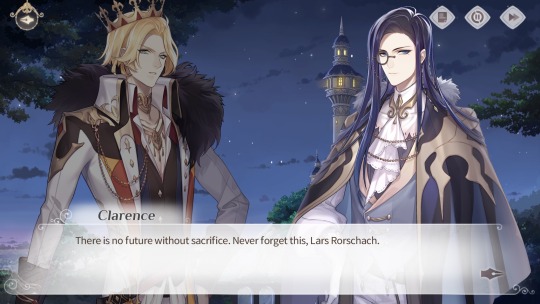
This downplaying of his own suffering, alongside his disregard of his own well-being, is what drives Clarence to self-sacrifice time and time again. When a theory about the Glacial Butterflies begins to take shape in his mind, he does not test it out on one of his mages, because he does not view them as expendable despite what he claims. Instead, he uses himself for his experiment, slicing his chest open and bearing the agonising pain in order to ascertain the truth of the magic within him.
On the verge of being overcome by the Glacial Butterflies, despite having prepared for this eventuality by shackling his limbs, he makes one last selfless request. “My Lord, you must kill me before I turn,” he entreats, willing to relinquish his own life for the safety of others. Even when Philip protects him from the Glacial Butterflies, refusing to kill him, Clarence believes that there is no place for him in the future that his Lord envisions.
Decades later, he still echoes this same sentiment. “There is no future without sacrifice,” he tells Lars, and he does not see himself as part of that future, does not see himself as deserving of that future. Archmage Clarence thinks of himself as a monster, not a man, and a monster is better off dead than alive.
It is a revelation, to him, that Amelia does not hate him. MC does not hate him. Lars, Alkaid, the mages that carry on the legacy of the Magi Tower, none of them hate him. They do not view him as a monster; they view him as a martyr, a protector, a saviour. Someone who did his best, and gave his all. Archmage Clarence leaves behind a legacy through his sacrifice, spurred by the human heart he still harbours deep within.
- ☽ -
Eden: Falcon Clarence
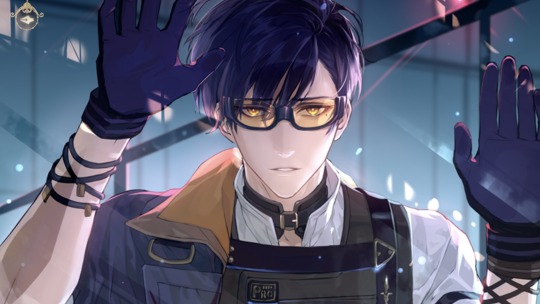
Next, we have the Falcon Clarence of Eden. The lone ranger of the desert, the mercenary that eliminates Sandswimmers with impeccable precision and works with no one else.
“A bait that only knows how to cry is a burden,” his mentor tells him, and Clarence internalises that into his cognitive framework and guiding compass. It is “the first lesson Liore taught [him];” that he must prove his worth in order to live. His scent lures the Sandswimmers to him, and so he must make himself useful by seeking out danger.
Valued only for his utility as bait, Clarence learns that his worth is determined by his fighting skills. With no other way to survive, he becomes a NEOS by fusing Sandswimmer gems into his body. Clarence pays the price of this acquired power through the gradual erosion of his memories, but that is far from the only thing he has lost. His decision to accept the integration of these foreign, beastly objects into his body has changed him irrevocably. He thinks of himself not as a human, but as a mutant being only one step away from becoming a monstrous Lost. Still, he endeavours to “remember [his] humanity,” because he refuses to become a “mere weapon [that knows] nothing but destruction.” Falcon Clarence understands that he is, by definition, a monster, but he refuses to relinquish the last shreds of his humanity.
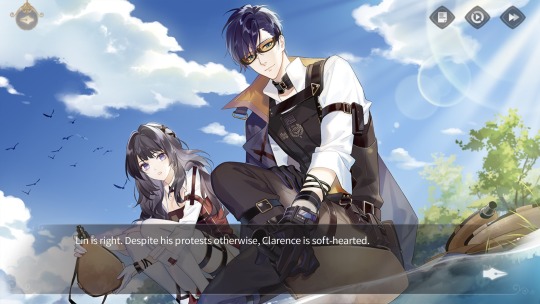
In his first encounter with MC, he is rational and pragmatic as always, scrutinising her motives and seeing no reason to work together. Years of solitude, with no one else to depend on, have honed Clarence’s reflexes into an “instinct for self-defence.” Yet his reaction to MC’s request reveals that his solitude has been shaped by circumstance, not entirely by choice. When MC explains her reason for seeking out Eden, even though it does not sound particularly convincing, Clarence accepts it as sufficient and agrees to lead the way. Despite the potential risk of allowing a stranger close, he offers MC a ride on his motorcycle. Subsequently, he continues to help her out, defending the children’s shelter and giving her the gems he’d collected, even as he refuses to follow her any further.
Falcon Clarence claims that he works alone, but everything he does is for the sake of protecting others. He fights in the desert to protect the shelters from Sandswimmers, and he fights in Eden to protect Lin and the other NEOS from the Lost. He brings MC to the NEOS Association, so that she can rest for a night and learn essential skills from Lin. He knows that the night is dangerous, so despite his own preference for working alone, he ensures that MC has a community of protection around her.
Even as he dismisses everything and everyone else as burdens, his actions speak otherwise. Despite having met MC for only a single day, he offers his assistance to her time and time again, from rides on his motorcycle to filling water bottles with her. He could easily leave her to fend for herself, but he chooses not to leave her behind even when that would be the easier way out.
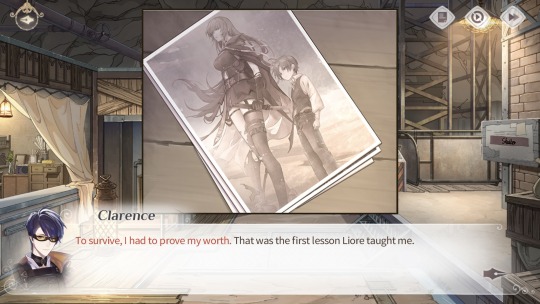
Perhaps the reason Clarence refuses to work with other people is that he’s afraid. Afraid of dragging them down, afraid of becoming their burden. He fears that history will repeat itself. He cannot bear to lose someone he cares for again, so he refrains from caring about anyone at all. Each time Clarence chastises others for being a hindrance, he is reproaching his past self for his inadequacy. Each time he risks his life to protect others, he is atoning for his failure to save his mentor.
MC says that she understands how Clarence feels, because “acting alone means nobody will be hurt because of [him].” In a way, acting alone also protects himself from being hurt. It is a defence mechanism born from his past, when he had to “learn to accept [his] losses” from a young age. He couldn’t afford to grieve Liore for long, not with the constant threat of the Sandswimmers, and so he could do nothing else but “live on with what memories [he] had left.” He’d forced himself to harden his heart to his emotions, but he could not suppress them entirely.
Clarence blames his moment of weakness, of emotional folly, for causing Liore’s death. It was her humanity, even in her final moments as a Lost, that held her back from killing him and caused her to die. He regrets his choice to this day, and perhaps it is this survivor’s guilt that pushes him to fight harder until he reaches the brink.
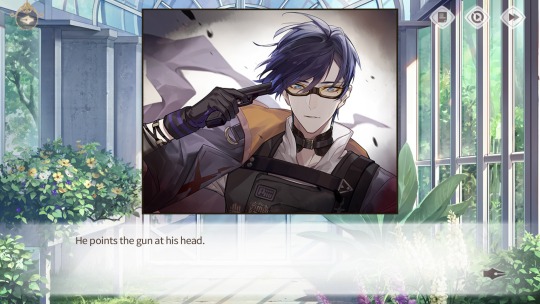
It is this same guilt, alongside his resolve to not lose anyone else he cares for, that drives him towards self-sacrifice. When he realises that MC needs a soul stone – his soul stone – to open the door within Central Control, he unflinchingly raises his gun to his head, as if it were the natural and logical decision to make. He is ready to offer his life without a moment’s hesitation, because that is the utility he can offer in this moment, in order to keep MC safe and help her achieve her goal. She has given him a reason to fight, and he will die trying to fulfil it.
Ultimately, it is his encounter with MC – and the companionship which blooms from it – that saves him. Without demanding anything in return, she cries for his pain, fights by his side, and shoulders his burdens with him. Clarence doubts his humanity, even as he holds fast to it, since he is all too cognisant of the monstrous traits within. In turn, MC’s unwavering trust reaffirms the humanity within him, reminding him that he is worthy of living.
Falcon Clarence may not be fully human on a biological level, and he may still succumb to the effects of the monsters within him from time to time, but he has managed to preserve his heart and his humanity. His tale is one of healing, of opening up, and of learning to value himself for who he is and not what he can do.
- ☽ -
Modern World: Clarence
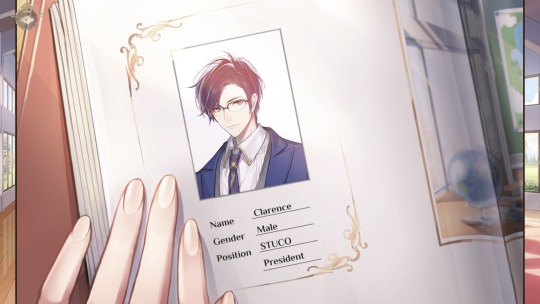
Finally, let’s circle back to modern-day Clarence. At first glance, he’s the calm, collected, and capable Student Council president, who always seems to have affairs in order and circumstances under control.
Then, in his Chrono Theatre diary entries, we learn that he had a psychiatrist observing him from a young age, due to his gifted aptitude and exceptional intelligence beyond that of his peers. This revelation sparked a discussion in the LBC discord server, which spurred this message of mine that then became the basis for this meta post:

Clarence is well-versed in decorum, but that doesn’t necessarily mean it comes naturally to him. It’s likely that he learned social etiquette by picking it up from observing how other people behave, so he knows the appropriate responses to give and the socially-acceptable ways to carry himself. However, because this social understanding is not an innate trait but a learned one, there are often times when he doesn’t recognise the need for social niceties, and instead his instinctual response – founded on his internal logic – comes through.
One example of this can be found as early as his second interaction with MC, after she paints an artwork of him:

The polite thing to do would be to express interest in or appreciation of the finished product, regardless of one’s actual feelings towards it. However, Clarence “doesn’t show the slightest interest” in MC’s painting. Does this mean that he doesn’t care for it, and doesn’t see the need to put on a pretence? Quite the contrary. Instead, it’s because he thinks he doesn’t have anything useful to offer in response, and thus he stays silent.
Here, we see a disconnect between how Clarence understands the world, and how other people tend to view it. While most people would appreciate receiving praise or validation, Clarence doesn’t particularly see the need to receive either, and thus doesn’t immediately think of giving them to others. Rather, he takes a more pragmatic approach, focusing on utility; a piece of work deserves feedback for the effort poured into it. However, as a law major, he does not have sufficient knowledge or expertise regarding art. As such, he believes that his feedback would not be useful, and thus it is better not to say anything at all.
This ties into how Clarence views himself as his roles, and the functions he can serve. He understands that he has worth, but he evaluates this worth through his services as the Student Council president, or his contributions as a law intern. When he assists others, he doesn’t think of it as going out of his way to help them; instead, he views it as part of his rightful duty.
As a result, Clarence doesn’t view himself as simply “Clarence.” Rather, he thinks of himself as Clarence, the Student Council president; Clarence, an upperclassman; Clarence, a friend. If he can fulfil someone’s needs through a role that he holds, he will do it, even at the expense of himself.
We see this most prominently in Clarence’s “Break Time” R card story:
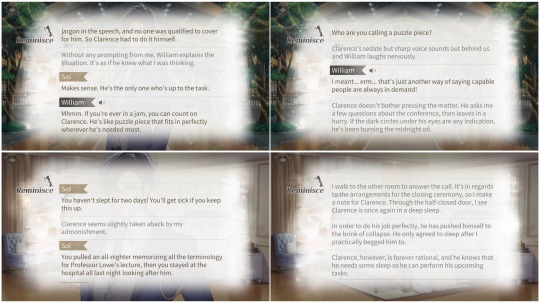
When the senior who’s supposed to interpret for an academic speaker falls ill and fails to attend, Clarence steps up to fill their shoes last-minute. William notes that Clarence can be counted on to show up whenever and wherever he’s needed, and MC agrees that he’s “the only one who’s up to the task.”
However, what most people don’t recognise are the sheer lengths Clarence will go to in order to fulfil his duties. On top of his regular responsibilities, filling in for the interpreter caused Clarence to “[burn] the midnight oil” preparing for the speech, and taking care of the sick speaker meant that Clarence could not sleep for two days. He doesn’t recognise that he’s constantly going above and beyond, because to him it’s a given, but he is in fact pushing himself past his limits, and past the line that most people would draw.
It’s interesting to examine MC’s thoughts here, because she interprets Clarence’s willingness to take a nap as a rational understanding that he needs to rest in order to keep functioning. However, this only happens after MC coaxes him into taking a break. If she hadn’t intervened, Clarence would have continued pushing himself until he completed his task – he was already at “the brink of collapse,” and he “only agreed to sleep after [MC] practically begged him to.” Clarence prioritises his responsibilities to the point that he does not recognise his own needs, and thus neglects to take care of himself.
Although modern Clarence doesn’t think of himself as different, or as anything less than a person, it’s evident that he views himself as the roles he fulfils rather than simply as who he is. In turn, this mindset is reflected in his behaviour, which then shapes other people’s perceptions of him. This is how Clarence becomes characterised as the aloof and intimidating Student Council president in the students’ eyes, even though he cares so deeply and helps out so much; most people are unable to look deeper and see Clarence as the person that he is, because he perceives and presents himself through the lens of his roles.
As such, other people often view Clarence as different from themselves – as if he’s operating on a different wavelength, or existing on a separate plane entirely. Modern Clarence’s genius sets him apart from his peers, but more than that, his perspective of himself winds up alienating himself from other people. Clarence views himself as like others, but others view him as unlike them. He blends in well enough, but he doesn’t quite fit in; he has a place in society, but he doesn’t quite belong.
- ☽ -
Clarence, across time and space
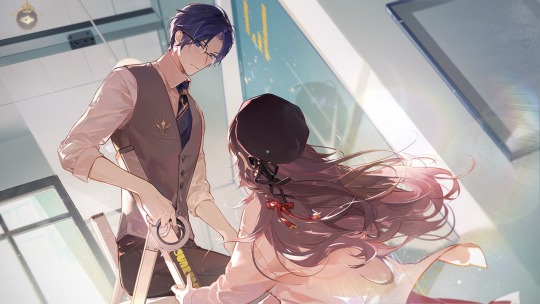
Out of all the Clarences thus far, modern Clarence is perhaps the most well-adjusted, and this reflects the importance of having a support system. Godheim Clarence and Eden Clarence were isolated from a young age and survived alone throughout most of their lives, whereas modern Clarence had family and friends around him. He may not have had the most conventional childhood, but he grew up with his older sister Jaclyn and his close friend Luca, and he also had his psychiatrist Ford observing and monitoring his development. Subsequently, after he enters St Shelter Academia, he gains a circle of friends he can rely on, such as William, O’Connor, and, of course, MC.
Expanding upon Clarence’s St Shelter Academia bonds, we see that Clarence has people around him who genuinely like him for who he is, and are willing to support him unconditionally. O’Connor affectionately refers to Clarence with a nickname – “Shi-kun” in the Japanese voiceover, or “Little Si Lan” in the Chinese one – and for all his devious teasing, it’s clear he looks out for his Student Council successor. As for William, he may whine about Clarence’s by-the-book discipline, but his clumsiness and complaints do not preclude him from helping out when needed. For all that Clarence often chastises William, he still relies on him to assist with Student Council matters, and he knows William is someone he can trust.
Compared to these two, MC is a relatively newer connection, but her bond with Clarence runs deep. Right off the bat, she’s able to meet him on his level and banter with him, and he lets down his guard enough to subtly tease her for trying to trick him. As their relationship develops, Clarence grows to trust her, sharing his inner thoughts and admitting his vulnerabilities. MC is a safe haven for him, and she understands him on a level deeper than most. While the other students may fear Clarence for his aloof disposition, or hesitate to approach him due to his detached rationality, MC sees the earnest sincerity woven into his actions and the warmth laced through his words. Others may think of him as an unfeeling robot or a terrifying monster, but MC loves him for the human that he is.
There’s a subtle but interesting juxtaposition here, in which Godheim Clarence and Eden Clarence – both possessing monstrous mutations within them – view themselves as monsters while most others do not, whereas modern Clarence – wholly human – views himself as human while most others do not. All three Clarences are keenly aware of what constitutes them, allowing this biological understanding to shape their perception of themselves, but they do not recognise that their actions paint a different picture to others.
Regardless of the world he inhabits, Clarence constantly straddles the line between man and monster. His selfless nature and dutiful diligence often lead him to self-sacrifice and superhuman feats, creating the illusion of a monster – but beneath this facade lies, always, the heart of a human.
- ☽ -
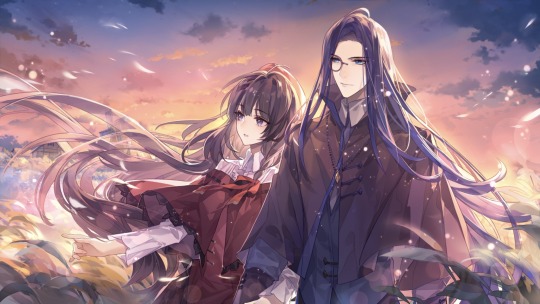
thank you for reading!♡
if you have any thoughts about this post, i'd love to hear them! responses are always welcome, and my ask box is open~
up next: android clarence, and the inevitability of tragedy. where is the line between human and machine? stay tuned for my thoughts on clarence's awakening main story!
#sol's meta analyses#lovebrush chronicles meta#lovebrush chronicles#for all time#lbc#lbc spoilers#clarence clayden#lbc clarence#lovebrush clarence#godheim clarence#eden clarence#modern clarence
270 notes
·
View notes
Text
Expanding on my thoughts from this post: https://www.tumblr.com/rovingotter/763436728814075904/heavy-spoilers-for-joker-folie-%C3%A0-deux-beneath-the?source=share
More spoilers for Joker: Folie à Deux beneath the cut.
The original Joker left it sort of ambiguous as to whether Arthur becoming the Joker was a good or a bad thing. I mean, obviously it was bad for the people he killed and the people affected by the in-movie violence he inspired, but there was some indication that this was actually a positive thing for Arthur’s mental health. He started the movie miserable and powerless and ended it smiling and surrounded by admirers. In the final scene, he seemed at peace with his new self, even if he was behind bars.
Folie quickly dismantles the idea that this represented a positive shift for Arthur. In fact it’s one of the first things the movie does.
The opening cartoon shows Arthur’s shadow coming to life, committing crimes in his name and then Arthur being blamed and beaten up as a result. When we see Arthur himself, he’s regressed back into his meek, quiet persona. He is, if anything, in worse shape than he was at the beginning of the first movie. He’s lost many of his endearing quirks, like his offbeat sense of humor. It’s hard to imagine this Arthur playing peek-a-boo with a random baby on the bus. He seems almost robotic. And this isn’t surprising, considering he’s spent two years being abused in the hellhole that is Arkham.
Some viewers were disappointed with this character regression, but it seems kind of inevitable. Like, he’s in a place where he’s locked in a room most of the time and is not even allowed to shave himself. He’s completely at the mercy of his handlers, and when he misbehaves he gets thrown into solitary confinement. He’s heavily medicated, on top of that. Of course being the Joker is not sustainable in this environment. It’s a reality check: the catharsis was temporary. Now he’s just trapped in hell, utterly alone.
(Though, still, they give us a moment where a fellow inmate asks for a kiss from Joker and Arthur just gently, nonchalantly kisses him on the lips. Kinda surprised no one else has talked about that?)
Enter Lee. From the beginning there are signs that she’s probably going to be a bad influence on him, but of course he latches onto her when she shows interest because for one thing she may very well be the first person to ever show romantic interest in him (Folie pretty much confirms many viewers’ headcanons that Arthur is a virgin who’s never had a romantic relationship) and for another, she’s a small ray of sunshine in a very dark place. But of course she’s specifically obsessed with the version of him from the TV movie…which is one of the many elements that makes this movie feel like meta commentary, because even though it’s probably not identical to the Joker that exists in our world, it’s a movie called Joker, about this Joker, which has inspired an obsessed fan who thinks it’s pretty cool that he killed those assholes and hopes that he’ll engage in more mayhem.
The movie also introduces Arthur’s lawyer, who from the beginning is pulling him in the opposite direction. She’s trying to get him actual medical help and reintegrate him into society, but first they have to convince the jury that it was the Joker personality, not Arthur, who did that stuff. Does she really believe that Arthur has DID? Who knows? But she’s working within an imperfect system, she knows that he is genuinely ill and wasn’t fully responsible for his actions, and she also recognizes that this is his best chance for avoiding the electric chair, so she tries to coach him on the right things to say to the press and the jury. Which Arthur is clearly not comfortable with, because it involves lying, presenting himself as weak and helpless, and also cooperating with a system that’s been fucking him over his entire life.
Soon enough, Lee is telling him to stop taking his meds, she’s setting stuff on fire and encouraging him to get into trouble, she’s bribing the guards so she can sneak into solitary confinement and fuck him, she’s telling him to wear his clown makeup to the trial and to fire his lawyer. Arthur’s lawyer, meanwhile, is like, “Listen I know she’s cute and all but this bitch is insane and you need to stop listening to her” and Arthur is like, “BUT DADDY, I LOVE HER.” Even after he finds out that Lee basically lied about her entire sad backstory in order to manipulate him, HE DOESN’T CARE. Because she makes him feel good. She’s the only person who makes him feel good. Even if she's probably going to get him killed.
Which—again, I think is a really interesting central dilemma for a movie! People say stuff like “nothing happens in this” but this is a shit ton of material to work with.
So I guess the question is, how did it go so wrong? Obviously, this movie did not work for most people. The reviews are abysmal. While there were aspects I liked, I left the theater feeling like I’d just been kicked repeatedly in the balls and the soul by a cackling Todd Phillips marionette. And not in a good way, in a “fuck you, I already have your money” kind of way. Is it just the ending? I mean, that’s definitely part of it.
I guess it’s the overriding sense that this movie is not pro-Joker but also not pro-Arthur. He makes the choice to be true to himself—and himself is Arthur—and then the movie viciously punishes him for that, even though it’s set this up as the right choice. Is the movie pro-anything? Is the message just “fuck everyone”?
I know people made the same complaints about the first movie—that it was nihilistic, that it didn’t have a message—but to me the first movie was a pretty straightforward exploration of how violence creates more violence. I did not think Joker was pro-Joker or pro vigilante murder, but the first movie did paint Arthur as a sympathetic figure who had snapped under pressure and made the wrong choices, and yet now, here—in Folie—he makes the final choice to reject his violent persona and reclaim his humanity, or at least take the first step towards that, even knowing it will probably cost him the love of the only person who cares about him.
And what happens as a result? More violence. Buildings explode, Lee abandons him, Arthur gets stabbed, the end.
Violence creates violence, and nonviolence also creates violence. Apparently.
In the end it just felt like the movie was delighting in its own sadism toward a character who'd already suffered tremendously, and not for any real purpose. I don't know what happened behind the scenes here. Artistically, I can still respect the chances this movie took. But I also fully understand the anger and frustration with it.
50 notes
·
View notes
Text
Analysis Archive
Desktop-only mirror.
I write a bunch of meta analysis/shower thoughts on Blue Lock’s manga. I tag most of ‘em under #boinin talks bllk but here’s a masterlist. ⚠️Spoiler heavy!⚠️
Chapter analyses
Chapter 215 Chapter 216 Chapter 217 Chapter 218 Chapter 219 Chapter 220 Chapter 221 Chapter 222 Chapter 232 Chapter 234 Chapter 238 (next goal speculation) Chapter 239 Chapter 247 (Isagi's belief in Ego's values) Chapter 249 Chapter 251 Chapter 252 Chapter 253 Chapter 254 (next goal speculation) Chapter 263 (fanlation v official translation) Chapter 271 (Rin and Sae’s parents) Chapter 293
Anime episode analysis
S2 Episode 1 S3 Episode 2 Kunigami-centric
Broken Hero: Kunigami’s Journey In The Neo Egoist League Stan Defence of Kunigami’s performance in the BMvUbers match Oh angry little tangerine (analysis of Kunigami’s panels across NEL games) Kunigami sadboi hours Chapter 293: Who will score the final goal of BM v PXG (and why it should have been Kunigami)
Other characters
Hiori’s evolution against Ubers Karasu, the Jay Gatsby of Blue Lock Loki’s role in the NEL Egoist Four: how many goals will each of the boys score? Kaiser’s upbringing / timing of Kainess flashbacks Analysis of EpiNagi’s tarot readings (EpiNagi Chapter 19) Batten Down The Hatches: Rin’s ego is about to land Ramble about Hiiragi and the pitfalls of having an overly large cast (EpiNagi Chapter 20) Isagi’s self-style theory gives insight into his own attitudes Rin&Sae sadboi analysis Karasu / Hiori EpiNagi analysis
In-universe meta
BL Characters and their DOB/Starsigns I’ve been thinking about where everyone sleeps in the German Wing… Speculation about the character’s NEL bids after Round 3 NEL Team Rambling (Chapter 245) Who do you want to win BL v who will win?
Fandom meta
My favourite character: Part 1 (shipping circle) || Part 2 (tierlist) || Part 3 (comic) Flairs on /R/BlueLock Blue Lock: AO3 statistics and fanfiction meta
Visual analysis
Hiori and the torii gates Chapter 238 Happy Egoween analysis Flower Language analysis: Part 1 || Part 2 Blue Lock Volume Cover Analysis: Post edition || Spreadsheet edition
---
updated: 21 February 2025
11 notes
·
View notes
Text
reading about kh3 gameplay mechanics on the khwiki (cuz i didnt do shit fuck with 99% of them when i played it) and like
the shotlock for oblivion is called ‘dawn eclipse’ in japanese, while oathkeepers is ‘sunset bright’
and i realized
kairi is associated with sunsets, which in kh (and in real life) are symbolic of endings
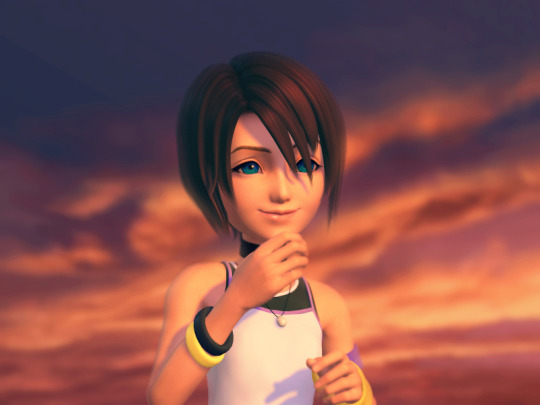
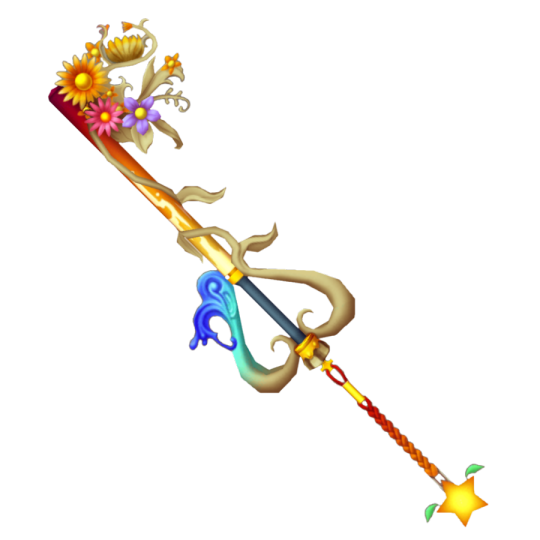

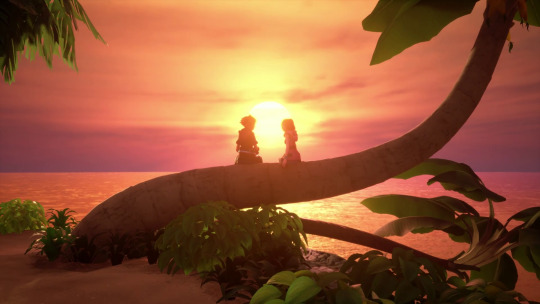
while riku is associated with dawn/sunrises, which are symbolic of new beginnings
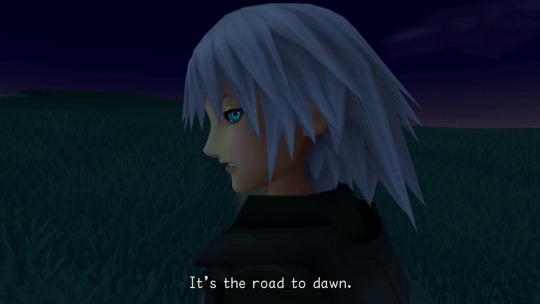



also, dawn eclipse? like the dawn being eclipsed by something?

and sunset meaning the loss of (day)light, while sunrise means the return?
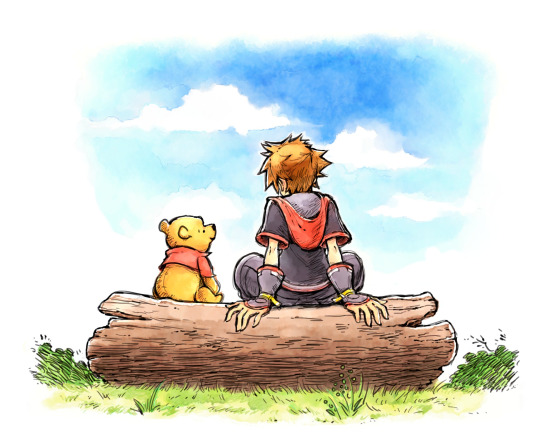
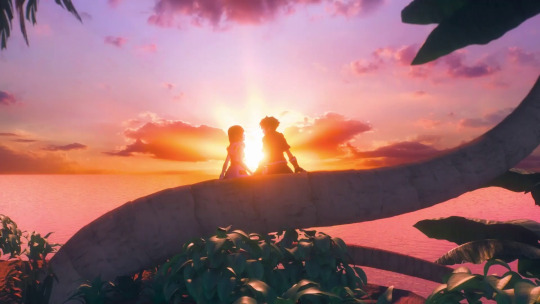
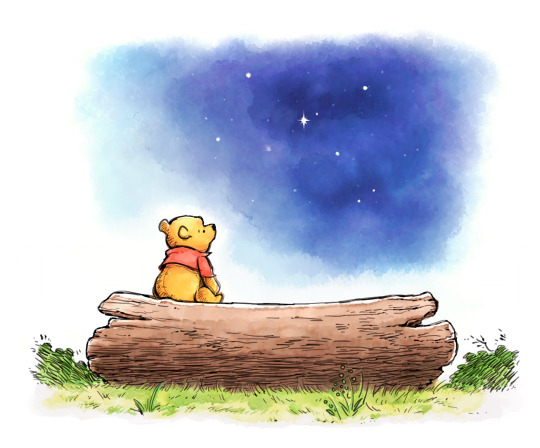
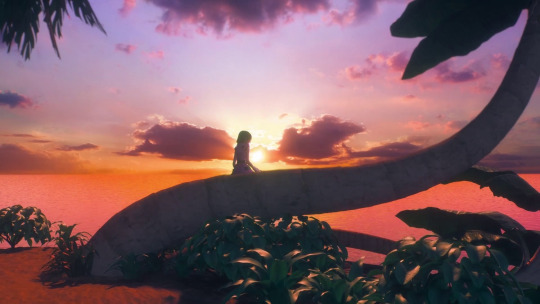
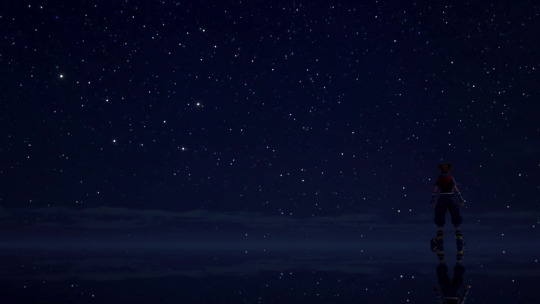
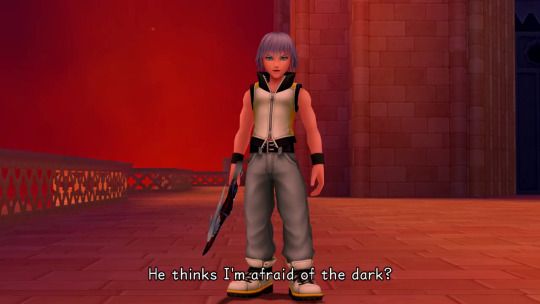
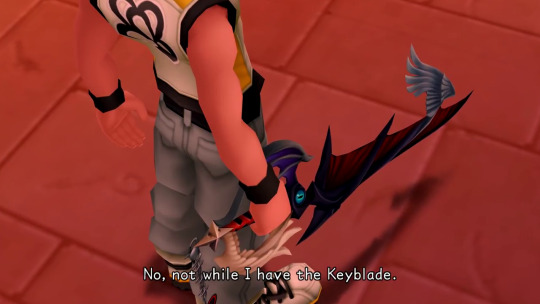


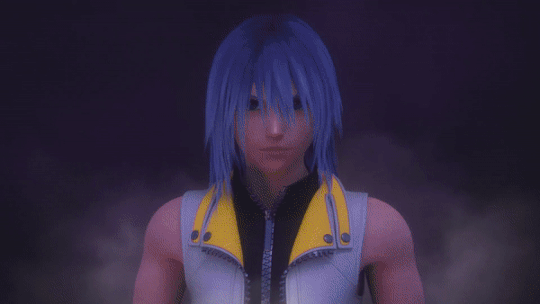
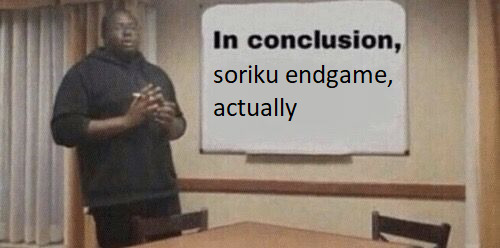
#kingdom hearts#soriku#destiny islands trio#kh3#kh3 spoilers#re:mind spoilers#riku is the light#kh meta#ali's kh meta#gif#ali's gifs#ali's kh gifs#long post#image heavy post#i actually only realized the night on bald mountain + riku parallel while typing this up n i dont think ive ever seen anyone else mention it#anyway the kairi and pooh parallels continue to absolutely blow my fucking mind#like what else would they be there for except to say sora and kairi NOT endgame????#its not an accident. the writers devs artists etc CREATED those scenes. they werent just birthed into existence by nothing#popular
207 notes
·
View notes
Text
STUDY IN LOKI ROMANCE
Part 5: Science/Fiction
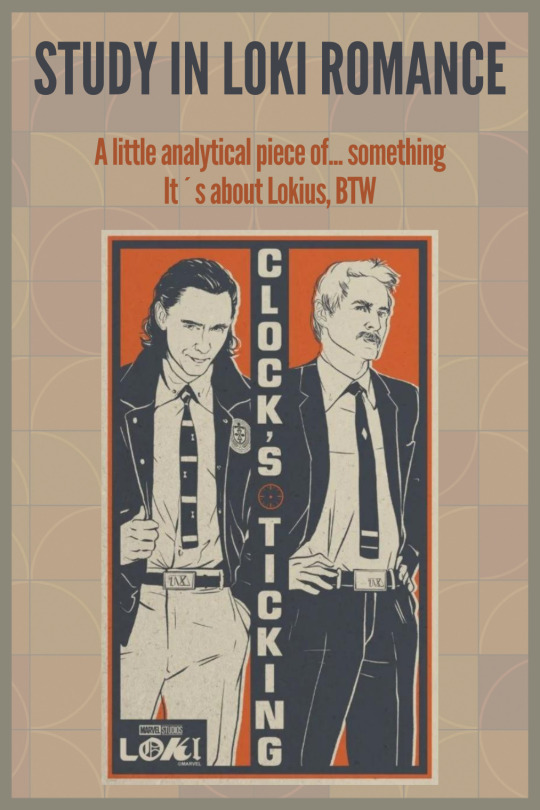
Since we're only a few days away from the last episode, I decided to COUNT DOWN everything we´ve got so far ( that can be interpreted very easily as romantic ) and discuss what the actual fuck is going on with second season. Because even though I shipped lokius practically from S1E2, I absolutely did NOT expect this kind of development. (Not that I´m complaining)
Warning: This is gonna be LONG post, lots of screenshots, lots of SPOILERS, lot of "oh-my-god-they-so-cute" language, and little bit of meta.
I originally thought that this post would be everything at once, but since I have just too many screenshots this time around, I´ll have to split it. so every post will be one episode. Color coding means:
IIIIIIIIII = anything, that coud potentialy be just acting choice.
IIIIIIIIII = everything else (tzn.: whatever was written, and/or carefully prepared by filmmakers. )
side note: I already wrote, about how amazing it is, that Mobius is unable to fight but fights anyway and how beautifuly, and ridiculously brave he is HERE. But this is about Loki/Mobius interactions, so I´ll try my best not to talk about THAT. (Even when I´m really happy, that s2 continues with this formula and Mobius is still his completely defenseless while aggressively brave self. I love him, btw.)
EPISODE 1 HERE
EPISODE 2 HERE
EPISODE 3 HERE
EPISODE 4 HERE
38) Loki looking for Mobius in PIE ROOM Hey... this is starting to be suspicious. is this room actual Heart of the TVA, that we didn´t know about ??? Why does everyone accidentally end up here???
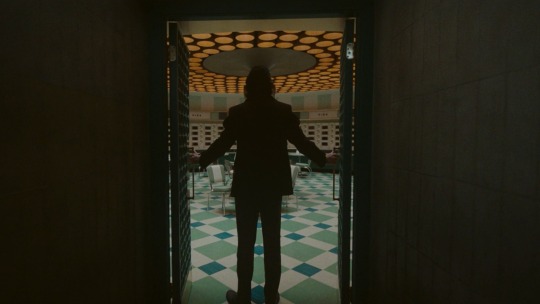
39) Loki Time slipping to the theater room (where he had his first long, table converstation with Mobius.)
I´m gonna cry 😭
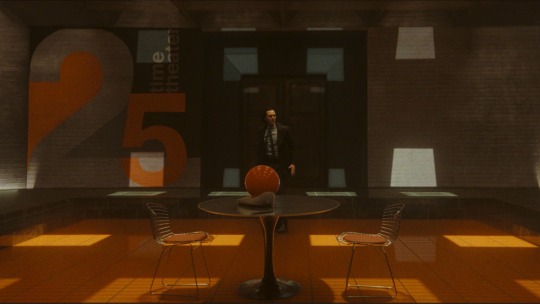
40) Mobius/Don casually informing Loki, he´s a SINGLE dad and telling him his entire work schedule (not that it´s important for anything, but Mobius is sooo damn handsome in that blue west!!! ) Also Loki staring at him through the window ?! And then being so distracted by him, that it took him interestigly long time, before he realized / accepted that Mobius doesn´t remember him (AGAIN). And he should have know this right away, because he already talked to Casey/Frank.
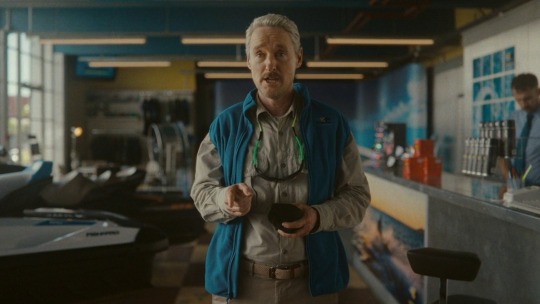
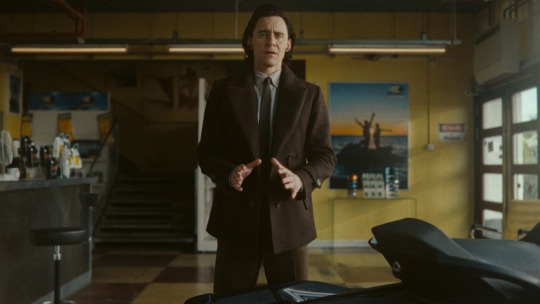
41) Loki time slipping to Mobius again (right when he started to be hopefull and Happy, that O. B. will be able to help him.
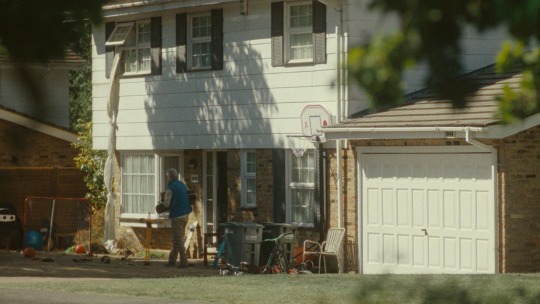
42) Loki glow up - or Loki fixing himself up, to look sexy not threatening fo Mobius/Don. I mean... this is just straight out of romantic movie, I´m sorry. Interesting acting choice there🤣


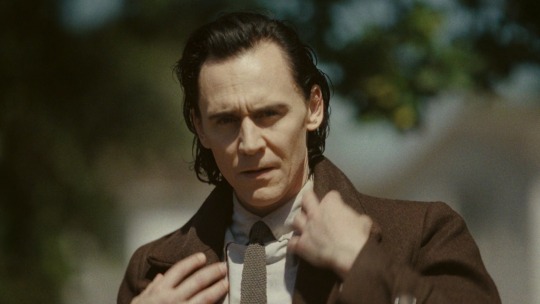
43) Loki being very nervous while talking to Mobius/Don.
Mobius: "You live around here, or did you follow me home? 😉" Loki: "Oh... no... hahahaha 😅 ... No no. I was... 😳I was actually on my way to the 👉👆👇☝️uh. And... 😨 And I happend to see you, so I... I... I 🫣 just thought I´d just come and say that I´m sorry that I... I... 🥵couldn´t... stick around back there. I was... um... 🤯 I was in a bit of a time crunch. 😅😅😅"
Said God of Mischief.
I´m sorry, but he´s acting here like stuttering schoolgirl with a crush. What exactly are you trying to accomplish, Tom ??? Anyway... I love it xD
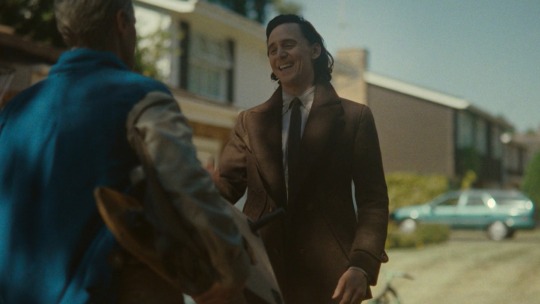
44) Mobius dropping everything and forgeting about his two mischievous sons so he can give Loki full attention
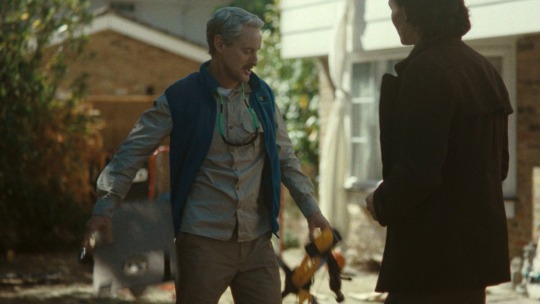
45) Wanna buy my wife´s jetski? - oh by the way, she´s long gone, and worst thing about it is the fact, that one of these beauties doesn´t have a rider.
would you wanna ride it with me? let´s jump up on these bad boys
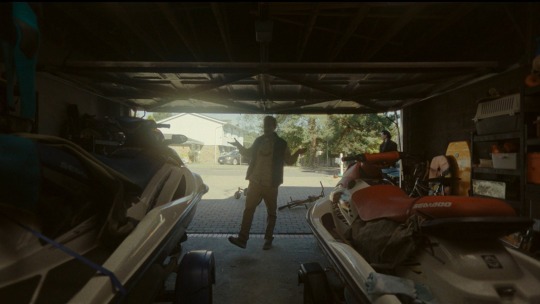
46) "A beautiful union of form and function"
The fact, that Loki remembers that line from S01E02 and that he echoes it back at Mobius, who doesn´t remember him... Like... WHAT? This thing is romantic as fuck. also finaly someone, who will gladly listen to Mobius braindumping about jetskis!!!! YES PLEASE. He deserves it! 💚 they litteraly made for each other!

47) Loki gently helping Mobius/Don through the time door. - while O. B. is struggling with heavy prototype of tempad...
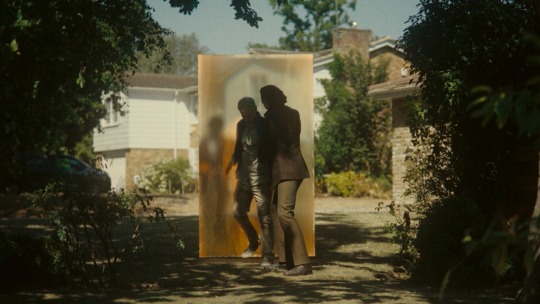
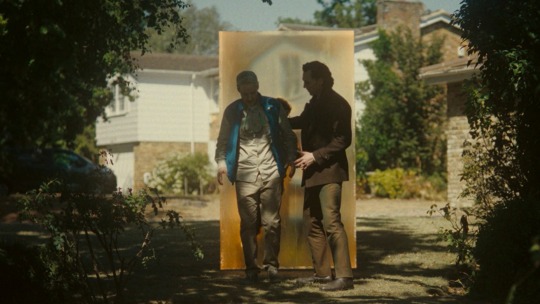
48) "You saved my life, when I first arrived. You saw something in me, that I hadn´t seen in myself."

Can you believe he said that??? Because I don´t. I´m still processing 😭 Also, see? He IS his friend... but O. B. is not. He WILL be (eccept O. B. knows Mobius much longer xDD ) I´m ok 49) "I want my friends back. I don´t want to be alone."
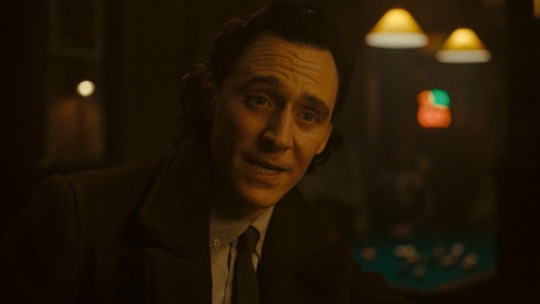
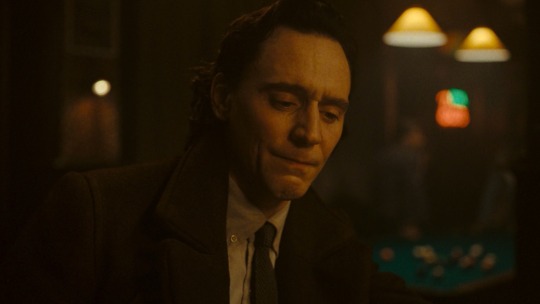
This scene is honestly so tragic. Sylvie helps him realize his true motivations and he looks so desprete. TVA: place, that he should hate is home now. Where he belong. And that´s why he cared so much and tried so hard to save that place. And thing he wants the most are his friends. Their company. (And if it wasn´t obvious, it means primarily Mobius. The man, he called friend several times this season) It´s him, who Loki doesn´t want to lose in the first place.

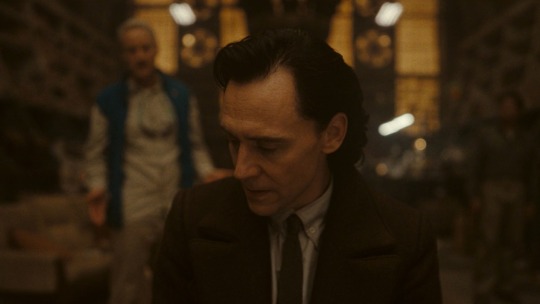
Loki looks so fucking sad here! I can´t! 50) "It was more about what I wanted."
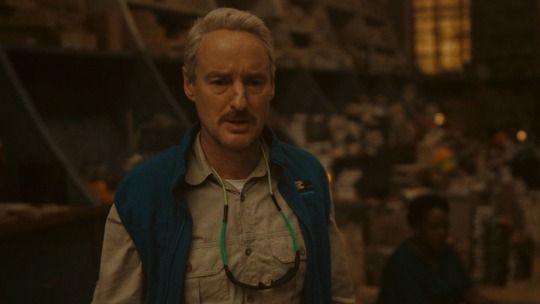

Not only he says it while we are watching Mobius, but let´s take in the fact, that he says it at all! Like... come on!!! Can´t he be just happy? As soon as he starts thinking that his actions are selfish, Loki will actualy choose what he thinks is better for Mobius and tries to let him go...
The character development in this show is just unbelievable
And finaly: 51) "It´s not about where, when or why. It´s about WHO."
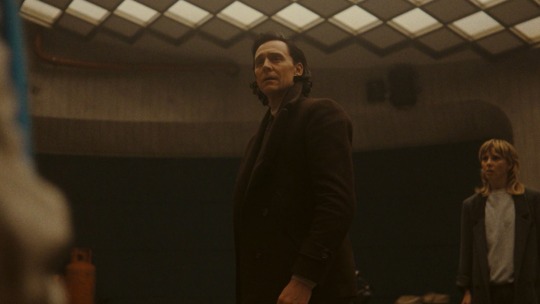
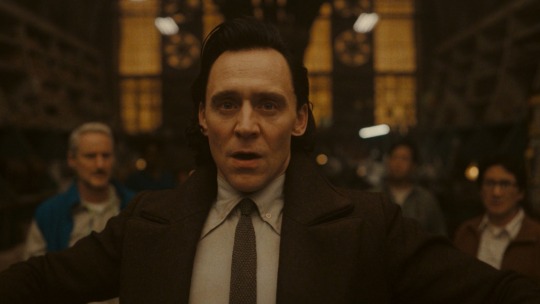
... said Loki, after very, very, VERY long look at Mobius. --------------- Anyway. That´s the check-list. In total, I counted 51 Lokius moment, but if anyone caught something I didn´t, feel free to correct me! the more, the better! 😁 It´s a hella lot of Lokius content. especially since I didn´t expected, like... not even third of it. So yeah. Last part will be kind of a conclusion. I will try to look at possibilities, what could all this mean. What could be the actual intent of writers and filmakers etc. And, simply put it, asking: WHAT THE FUCK 😳
87 notes
·
View notes
Note
1, 4, and 19 for the Fun meta asks please!
Hello @stardust948 !!!
Tell us about your current project(s) - What's it about, how's progress, what do you love most about it?
Hopefully I get all of my WIPS!
Dragons In The Lake - Azula and Zuko wind up in BSS when they’re very young (4 and 6) and Long Feng decides to kidnap them and hold them in Lake Laogai. Flash forward 10 years later, when the Gaang arrive looking for Appa and find both him and two dragon firebenders - I have two chapters left but for some reason I'm struggling to write them - I really love getting to write Azula and Zuko in this new dynamic as they are much closer here and this is a fic where they don't need a redemption because they were never raised (that much) on FN propaganda
Here's The Deal - Sokka arrives in a small Fire Nation village in the hopes of getting some shelter from a storm and some time to relax. He's shocked to discover not only that Azula is in the same village but also that there's a blue dragon with very familiar golden eyes living in the forest - I'm done. Just posting chapters now and doing some light editing - I love the Sokkla fluff so much!
I Had the Best Day With You - Foster kids Zuko and Azula are taken in by Kya and Hakoda and brought to live with them and their children, Katara and Sokka. The family goes through many ups and downs while trying to accept one another - 47% complete. I'd like to write another 3 or 4 chapters before I publish anything though - @ilikepjo24 came up with this idea and my favorite thing is actually a spoiler but it involves an Azula & Hakoda and Azula & Kya moment.
When World's Collide - Mermaid!Azula is taken by captors to a sea park where she meets Katara and the two begin a friendship that turns into a romance - .09%. I really need to start making progress on this thing for Mermay - I like being able to create this world that Azula's from. In the story she's a warrior and that's actually part of the reason she's captured in the first place.
My Baby, My Baby - After the events of The Beach, Zuko goes to talk to Azula about what she said. When she brushes him off, Zuko thinks nothing of it and heads to bed. The next morning, he's woken up by Mai shaking him away and Ty Lee holding a toddler - Have hardly started because two days ago I decided to completely change when this story takes place to make it shorter - Easily writing baby!Azula. Plus writing Zuko & Azula having a good relationship is always fun
Lightning Swap - During The Avatar State, Azula and Iroh accidentally swap bodies and are forced to try and find one another and find a way to swap back - I've written....some. I'm in the middle of a writers block for this fic actually because it was originally a oneshot but I have no idea what else to write for it - Body swapping shenanigans are always fun.
4. Share a sentence or paragraph from your writing that you're really proud of (explain why, if you like)
“Oh!” Sokka’s eyes suddenly went dark, “Azula, if you even think of going anywhere near that dragon-“
“Might be a bit difficult.”
“I’m not kidding.” A small part of Azula could admit that Sokka’s voice did scare her a little. She’d never heard him sound this serious. Even when he yelled at her during the invasion, he wasn’t this scary. Maybe that was because he had the Avatar and Toph behind him, so he didn’t feel the need to be at 100%. The two powerful benders behind him could do the heavy lifting. Or maybe it was because at the time he was just angry and yelling and Azula knew that he didn’t mean any of his empty threats.
“I don’t think you are, but I do think you’ll be interested in what I have to say.” Azula removed her coat, being careful not to hurt the fabric that was so nicely wrapped around her arm.
The second Sokka saw his fabric on Azula’s arm, his eyes grew. He looked between her and the fabric again and again and again.
“You’ll get it in a moment.” Azula promised, smirking at how dumbfounded he looked.
“YOU’RE THE DRAGON!?!”
From chapter 2 of Here's The Deal. I like Sokka being protective over Azula even when he doesn't know it's Azula.
19. Is there something you always find yourself repeating in your writing? (favorite verb, something you describe 'too often', trope you can't get enough of?)
Probably the word but and said. I feel like almost every other sentence I write had the word but in it. While every time someone talks I have to stop myself from just writing "blank said"
#ask#mutual#writing ask#azula#zuko#hakoda#kya#katara#sokka#aang#mai#ty lee#toph beifong#suki#dragon azula#dragon!azula#de aged azula#iroh#sokkla#azutara#fire siblings#the fire siblings#fire hazards
10 notes
·
View notes
Text
Beyond Canon, re: p666.1, 666.2
So, I want to comment.
The fact that the "session" Vriska has begun is no S***b at all but a therapy session in the hyperbolic helltier chamber. Hilarious.
It's cool how the page is basically Homestuck: The Visual Novel. The talksprites & dialogue do the heavy lifting, the background & music's there for the ambiance.
Upon seeing the time skip, Blaperile had the good idea that she might be in here for 6 to 8 years. Bringing Vriska closer in age to the other Meat timeline kids. At least, near the start of their journey to Deltritus. Plus, most of them are functionally immortal.
In a lot of ways, Vriska was left lagging behind. Her insistence on going out to fight Lord English meant that her own personal timeline has been so short until now compared to the rest. Terezi went out to search for her for years upon years, while for her, less than a week passed on Candy Earth? Crazy.
I was wondering what introspection could be forced upon Vriska, that would feel earned. I mean, the post-retcon version of her already did much of this on and off screen, it could've ended up feeling repetitive somehow. But no.
No, this feels right so far.
She spends the first two years (???) trying and failing to move forward with Tavros (and Davepeta). I would've assumed she only had those two locations to explore in all that time (Tavros' hive's terrain and her own). Until she started venting there.
Seems everything in Helltier Alternia is available to her. It probably just never stops feeling fake. Which reminds me a lot of the (revised) ending to qntm's Ra.
SCROLL TO THE NEXT ARROWS TO AVOID SPOILERS ========> . . . . . . . . In which the characters end up on a simulated version of Earth with the story's self-proclaimed protagonist swearing up and down she can feel the difference. And nothing what the people in here do matters as none of it's real. . . . . . . . . <================ END SPOILERS
So, what are the people in the hyberbolic chamber, truly?
Tavros & Aradiabot seem like self-aware versions of their past selves, like unawakend dream selves. Tavros even felt more confident than I've remembered him ever seeing. Hope this isn't because this was his pre-paralysis self.
I kind of wonder if the sprites are standing in for themselves in the chamber. Aka that Vriska hung out with GCATavrosprite-as-his-past-self all this time? Not sure though.
Aradiabot, you ask? Well we know that Alpha Aradia has been travelling to all sorts of alternate timelines and is very much much older than she looks. So she could've gone and filled in for Aradiabot here, too. She used to be her own sprite, after all!
But that doesn't feel entirely satisfactory, either. It kind of feels nicer to imagine Vriska's been engaging with "meta Tavros" and "meta Aradia". Aka, an amalgam of who've they've been in the story, to the people reading Homestuck. Very much a function of the Point, but also very much the character themselves as well.
In other news, how many times will Vriska end up 'dying' in the chamber, on screen? I mean, in the last part she went to lie on her quest bed. Not a lot of sleep happens on those! At least, not for long.
It's hilarious that Davepeta seems to have been designated Vriska's "handler" but has no real experience to help her along. I mean, that's most of the sprites in a nutshell, but still. If the chamber's supposed to give her growth, you'd have thought she'd be given a better helper.
Then again, the sprites might be constructs of the chamber too. Vriska might really be in here alone and the chamber just has her own psyche to work with. She's internalized she's a badass who doesn't need help.
And now she's slowly unlearning things. By now, she's learned to ask other people what they want to do. The prompt "What will you do?" was never about her, it was about the others.
It's going to be interesting to see what she has to confront in the Mindfang path, though. It would be wild to get talksprites for Mindfang or Spidermomsprite! But if it's about her toxically near-religious obediance to Alternia's obsession with ancestors… Yeah I can see her talking with a version of pre-retcon Vriska. Or Aranea. We don't know if she ever did meet a version of her dancestor post-retcon.
Loved how the page went and took in a larger part of the page, like during [S] Cascade. And the branching paths evoke the paths we got to choose from during the time the cartridge was corrupted.
Yeah, on rereading the text, I think Tavros & Aradiabot are elements of the chamber trying to guide Vriska along.
If she'd only contemplated what WORDS could've been better than the ones she said already, instead of jumping to ACTIONS (hers or Tavros'), it wouldn't have taken two years for her to get there with Tavros.
But that's the road she had to travel: Apologies -> Revenge -> Actually sitting down & sorting it out with the other party.
Now for her to unlearn all her other unhealthy coping strategies! Yeah she's going to be here for a while.
Neat bit, that bit about projecting though. It's true, underneath all the bluster, she was just a kid trying to find the best way to deal with the world she was given. And then, when she thought she found it, she put everyone in the same box with her.
And hey, Tavros' reaction (pointing) at realizing she might be projecting… Was that a reference to the Turnabout fangame?
Him proposing they could be projects for one another… Imagine them as moirails, dear god.
Tavros can very much pretend to be blue as he is now (as a sprite).
It's interesting to (re)learn how much Vriska was obsessed with trying to patch things up with Aradia. While Aradia was like "whatever, bye", lol.
And, is the helltier rung thing a real thing? Cause we saw godtiers physically represented as platforms! This seems more like Vriska's finally truly scaling her echeladder.
Like she skipped a few steps in growing as a S***b player, which seems just so like her.
Real on the nose that she spends all this years. Stuck. In her old home. Bent. To return to her hive each time.
Aradiabot's spiel about incremental change & the danger of cycles reminds me of the song. "I'm going around, not in circles but in spirographs." It's the difference between getting stuck in this chamber vs. the dreambubbles, too, I guess.
Waiting to see if this all really will end up with a Scourge Sister fond reunion!
#homestuck#reaction#upd8#beyond canon#spoiler alert#helltier#vriska serket#tavros nitram#aradia megido
15 notes
·
View notes
Note
Hi there! I was just reading your post on Mystra grooming and I thought it was very well articulated I just had one question on it. You mentioned that Elminster reached out to Gale when Gale was 8 years old and I haven't seen that mentioned in the game or in other lore for the game. Would you mind letting me know where that was sourced? Mostly because I'm interested on reading on that more, thank you
Hello there kingtycoon13
SPOILER ALERT: EPILOUGE
The reference to Elminster reaching out to Gale comes from a letter that Elminster writes to Gale when he ascends to Godhood. The letter can be found in a basket full of letters the player can read in the epilogue.

More under the cut
In the Forgotten Realms Wiki, it does say that Elminster took on apprentices from time-to-time. Sometimes they were by Mystra's request.

https://forgottenrealms.fandom.com/wiki/Elminster#Apprentices
We do not know why Elminster appeared on Gale's doorstop when he was eight years old. We do know that Gale was a child prodigy who could summon rabbits when since he was toddler (I cannot find the dialogue for this on the web). If magic was unstable at the time this makes his power an even more impressive feat.
So Elminster had connection with the Blackstaff and was prominent in Waterdeep.
There is every potential that he heard about a boy prodigy who was living with non-magically inclined parents and rocked up to their doorstep to offer help. He might have been thinking about how Mystra will need more chosen when she returns, or he might have just decided that it was time for another apprentice.
On the forgotten realms Wiki it says that Elminster spoke to Mystra who possessed the body of a bear and asked him to find new candidate's to become her chosen. Gale would have been 22 at the time if we go with his cannon age of 35.
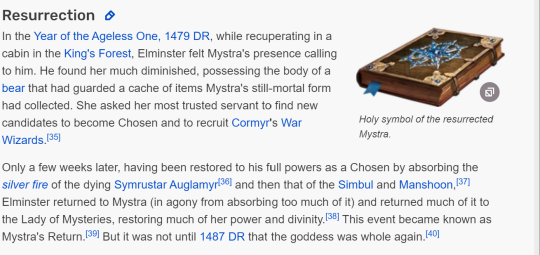
https://forgottenrealms.fandom.com/wiki/Mystra_(Midnight)
I think that Elminster may have suggested Gale as a candidate when Gale was 22. Elminster has helped train her chosen before, such as Sammaster.
There is also a very interesting tidbit I found upon looking him up where he says he left the encounter feeling as though he and Mystra were in love;
https://forgottenrealms.fandom.com/wiki/Sammaster
I do not know to what extent Mystra's presence could be felt whilst she was gone. But Midnight was said to have felt a 'presence' and her spells which might've failed succeeded and she felt like she was being groomed, before becoming the next Mystra. I cannot find any evidence to support a theory that Mystra was behind Gale's ability to cast magic at such a young age. But it is an interesting theory nonetheless.
Anyway, back to my original point. When I said that Elminster had a part to play, I meant that he is a renowned wizard and former chosen of Mystra. And he inserted himself into Gale's life when he was 8. It is implied that he did help him, and potentially recommended him if she did not already have her eyes on him herself.
Elminster does mention making a mistake in his letter, so could that be the mistake he refers to?
We don't know if Mystra sought Gale out as her chosen because of Elminster or vice versa. She may have set her eyes on him regardless but perhaps at a later stage. Either way, Elminster had a part to play in Gale being selected as her chosen.
My idea also stemmed from a post a read a while back where someone wrote Meta's on each BG3 character;
The final point I wanted to make was that grooming does not always involve one person. It can be an organisation or an entire industry which is set up to suck the souls out of people who have talent. Be it academia, sports, the film and music industries or the fictional industry of Wizardry.
But in general the process of becoming a chosen is exploitative and manipulative. We witness that in game with Shadowheart and Lae'zel. They were all groomed in different ways.
#bg3#gale dekarios#My attempt at a lore dive#It's not that deep this is headcannon based on lore information I have read and things in the game#Because the game leaves a lot to interpretation#I am going to regret posting this#It's still grooming#gale of waterdeep#gale defense#mystra hate club#bg3 Gale#bg3 discourse
21 notes
·
View notes
Text
The Tarot Sequence Reread
Nothing has given me brain rot in a long while like the Tarot Sequence by K D Edwards has. And since I just finished reading all the supplemental stuff right when my hold for The Last Sun came back up I thought I would do something I have only done once before-and in a much less flattering way for a book I hated-and live blog my reread.
There's just so much in this series I need to pay closer attention to. And usually I would go on here and read some metas, but there is literally nothing!! The only things in the tags for this series is people wishing there were more people reading it, a handful of very wonderful fanarts, and an account of the decline of a discord that evidently used to exist for it. So, maybe this will encourage some people to read the books too.
Because there are some heavy topics in this series anytime I talk about such topics I will tag for them, but if they don't come up in the chapters I'm reviewing, I won't. So if you have certain things back listed you might not see all my posts on it. Anyone who is reading along and is curious about it can DM me.
NOW! Predictions and things I want to pay attention to under the cut for spoiler reasons.
The Tower. At the end of the prologue of the first book my thoughts were, " So we trust NO ONE!!" Except Queenie, because why would Rune and Brand live with her if she was evil? Then the children showed up and I had to trust them, they were too young to be part of the, whole thing, plus they are so cute. You have to trust them. And then Addam came along, and of course we trust him, he's an Addam, he's a giant dancing teddy bear and I love him! So I read the whole series (that's out so far) expecting we would find out the Tower was an evil guy, that he had had something to do with the fall of the Sun Throne. Honestly by the end of the third book I didn't think that any longer, and I was starting to before that after finding out he was also Qunn's godfather because!!! There is no way Qunn wouldn't have seen if the Tower revealed he had been a part of all that. (I'm still asking myself HOW exactly he or Mayan wouldn't have noticed an astral projection listening device being installed in Rune's room at their freaking tower that is super locked down! But then it happened for two other locations that were supposed to be super warded and protected my other companions too. So maybe it isn't his fault. I do think he might blame himself, I do think that some of his stand-offishness might also be guilt for not being able to stop the attack on the Sun Throne to start with. We will see...) I'm going to go into this read through with the assumption he is just lonely and sad and not a bad guy.
QUEENIE!!!! Because, WHO THE FUCK IS QUEENIE!? I was already suspicious because every time someone asks Rune and Brand where she came from, or how long she's been with them, they say "She's been with us forever." Every time! It reeks of mind fuckery. Then Eidolon and the epilogue that wasn't came along. Current theory is that she is the Empress, and also that she's probably Rune's mother. I would be willing to bet she was the woman at the end of the third book who spoke up to the river after everyone else. Edwards did a good job of making her disappear in the background, but I'm gonna be hunting for every mention of her and how she acts around everyone.
Ciaran, just because I love him and at first also suspected him of evil deeds. But he's just your gay vodka uncle and he loves all his adopted family so much and I just want to keep a closer on him at the start of the series.
Kellum. We only see him once in the second book, but he's mentioned in Eidolon by the Fool (Or Queenie pretending to be the Fool, again I'm not sure, there's Queenie interference for sure) And he was in one of the supplemental novellas. I think he will be making a bigger appearance in the next book.
Quinn's prophecies. I'll probably make a list of those for a separate master post.
Tallas. The Atlantean soul mates. This is a MAJOR spoiler. Rune says that Brand and he formed a talla bond the night of the attack. That it was what brought Brand out of the geas and got them to safety. The bond was gone when he woke up in the hospital and he's spent this whole time thinking he's somehow broken their talla bond. Something definitely happened between him and Addam in the Westlands, and I don't think Addam was wrong in assuming it was the budding of a talla bond. Because something sort of bond-like is also there now after the Hourglass Throne, after he used his bond with Brand to get him and Addam back to their time. My theory here is that they might be each other tallas, all three of them. Together. We know that it doesn't have to be a sexual relationship, though I don't think Addam would mind that one bit. Everything is pointing to the three of them being tied together somehow, and my theory is mostly that, before they were together together, no one talla bond could form and take precedence over the other. Now that they are together all the time, going on missions, living together, they have more opportunities for a bond to fully form and take hold. Assuming it involves all three of them.
And with that, I'm going to go read!
#the tarot sequence#k d edwards#the last sun#rune saint john#brand saint john#max saint john#quinn saint nicholas#addam saint nicholas#the hanged man#the hourglass throne#the eidolon#booklr#ttsrr
46 notes
·
View notes
Text
realised i've never done an intro to this blog so it's probably about time
my name is zeep!
i'm 21, audhd, queer and non binary. any pronouns.
i love ppl interacting in reblogs and leaving asks.
feel free to dm me! i probably won't reply if you just say "hey" or "how are you." just start talking to me like we're already mates. i'm nice i promise.
more about my blog + boundaries below the cut
what i post:
my original posts are mainly rick and morty metas analysing the characters, certain episodes of the show, themes and fandom analysis (tag: #rick and morty meta or #[character name] meta)
for generic posts about specific characters, i use their names (eg. #rick prime, #evil morty)
for posts regarding a certain episode, i use the episode titles (eg. #the abcs of beth, #unmortricken)
posts about a certain season are under the season number or spoiler tags (eg. #rick and morty season 7, #rick and morty season 7 spoilers)
sometimes i thirst over rick and it's embarrassing (tags: #rickfucker #old man alert). i get nsfw sometimes which will be tagged #rickfucker nsft and/or #mdni (srsly minors don't touch these posts, see boundaries below)
if i'm not thirsting or analysing then i'm shitposting.
i do write fanfic but im yet to connect my AO3 to this blog. maybe someday i will.
my main ships in this fandom are: rick c-137/rick prime (#prickcest), rick/birdperson (#birdrick), rick/reader (normally gender neutral, no designated tag yet).
i try to keep things sfw but sometimes i deviate and post some sexual stuff or gore, mainly in reblogs but sometimes in text posts.
i discuss some heavy shit sometimes so i try to consistently tag tws and cws. i use some tags pretty often so blacklist these if you need to: tw suicide, tw suicide mention, cw gore, cw blood, tw alcohol, tw substance abuse. i try adding both the cw and tw tags bc i can't remember which r used more. sometimes i mess up so do lmk and i'll fix it.
boundaries:
i won't and cannot stop anyone from interacting with my posts, however i would ask that you're respectful of my boundaries. if not then you get blocked.
general dni criteria. general don't be a dick rule.
proshippers mainly incest and underage shit, dnf. i'm anti censorship and won't engage in discourse but seeing that especially in the r+m fandom is a genuine trigger. tag your shit correctly and leave me alone and i'll do the same.
i'm a passionate justin roiland anti. anyone who defends him gtfo.
if you're a minor or ageless blog dni with my nsfw posts.
if you're cool w all this then feel free to stick around.
28 notes
·
View notes
Text
Hawks didn’t have to kill Twice
Meta: Necessary 1 and Hawks inner conflict 2 (Warning: spoiler Heavy and very Long post, images and writing)
(Sorry for being so late to this topic, this Meta took a long time to make and update with current plot points. Also permission is given to Re-post (not rewrite) this Meta anywhere/any site)
Necessary: Sedation and backup options (1)
It wasn’t “necessary” for Hawks to kill Twice and by extension not justified either. Hawks could have used a sedative on Twice to capture him or at the very least rendered him unable to be a threat for an extended period of time.
Within the story and overall context of Bnha, Hawks should have been able to do this quite easily, especially compared to what he was already doing in story.
Momo can create some form of drug so powerful that it could knock down Gigantomachia given enough time, obviously something so powerful wouldn’t be needed to knock out Twice but the point is that Momo’s powers are based off of things that already exist in their world, things that she has to know the components of to create. So things like an agent that can render someone ineffective/unconscious do exist in Bnha.
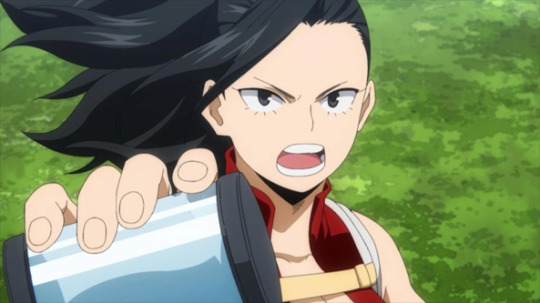
A drug of this size ^ was eventually able to knock down Gigantomachia, so surely something much smaller should be able to do the same, and in much quicker time, to a normal human like Twice.
Hawks was being observed at the time he was acting as a double agent in the MLA, so it may have been difficult for him to obtain such a sedative without notice, but that line of thinking doesn’t really add up with what we see in the story.
Hawks uses the Destro books to warn the Heroes about the impending threat of the LOV/MLA and he does this by marking/highlighting certain words and sections of said books.

He literally tells Endeavor to read those specific parts and despite being observed in some form, no one thought any of that was suspicious enough to do anything about.
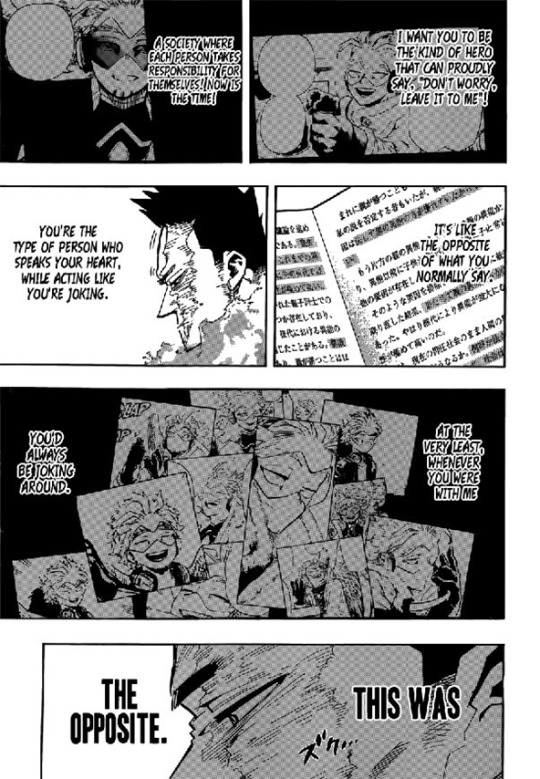
So either Hawks wasn’t being observed that thoroughly or those watching him were very incompetent, I’m thinking it’s the former.
Hawks is a Hero, primarily a fighter but also a pretty fair rescue hero as well, if the Destro book warnings flew under the radar then I don’t think anyone would have found it very suspicious for Hawks to obtain a sedation drug/tool and keep it on his person, if ever needed the excuse could simply be that such a thing may need to be used to render a frantic or injured civilian immobile in order to rescue them.
Is that legal for heroes? Not sure but I don’t think it would have been discovered or mattered that much in Hawks’s already very shady situation.
But if it did need to be hidden and couldn’t be discovered, like for instance if Hawks’s person was searched and he didn’t want such a thing to be discovered in the first place, then what?
This wasn’t a problem either as Hawks was able to apparently sneak in a very noticeable and fairly sized recording device.
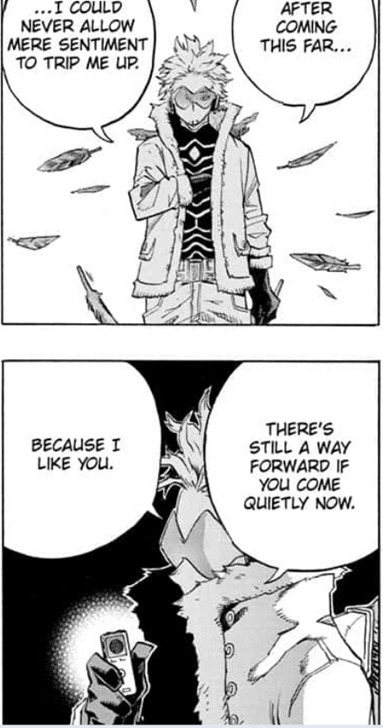
(This was cut from the anime as far as I know (for some reason??) and only shown in the manga.)
The device itself wasn’t even a bug, shown in size by being scaled to Hawks’s hand; a sedative injection could fit in such a device of that size. The concept isn’t so far away from the Quirk erasing bullets.
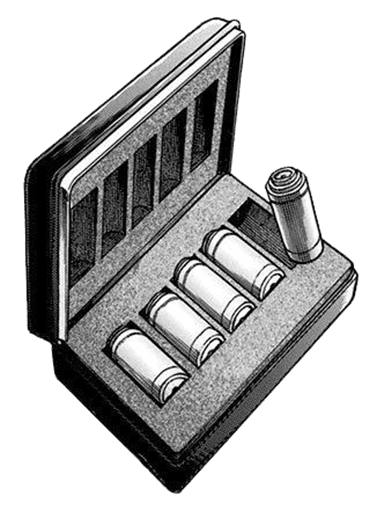
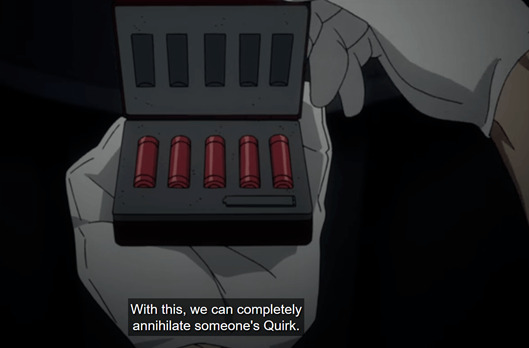
(Scaled to size the injectable device/contents is about the same size as the recording device Hawks brought (easily snuck in) with him.)
“A villain who refuses to be knocked out” is a part of Hawks’s reasoning in his decision to kill Twice, but Twice is still just an ordinary human being aside from his Quirk, the ‘sedative option’ logically was more than possible and definitely would have had the desired effect of either completely stopping the threat of Twice’s Quirk or at least severely undermining it.
Why wasn’t better backup prepared on the heroes’ side?
The hero commission and the overall hero side never had much of a problem using the students in the war, there wasn’t even much protest against this course of action, Midnight herself even justifying it by saying that Kaminari knew what he was getting into (which given the situation I very much doubt) and that no one else can do this because his specific Quirk is needed.

This instance/battle is important for more than Kaminari’s big hero moment and confirmation of his feelings for Jiro, the heroes had intel of Kaminari’s specific chosen opponent, “The Amplivolt villain” a high ranking member of the PLF, who’s power is very similar to the young hero’s quirk in the absorption and manipulation/discharge of electricity.
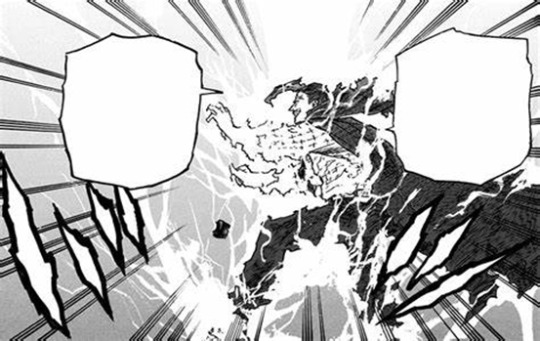
Kaminari fulfils his role in this specific battle, a success because the heroes had obtained Intel on this specific opponent, the only logical line of reason being that this Intel must have come from Hawks, being the heroes source.
So why wasn’t this same logic applied to Twice? Or even to other villains?
Hawks confronts twice and shuts down a sad man’s parade in an instant, as well as pinning him down:
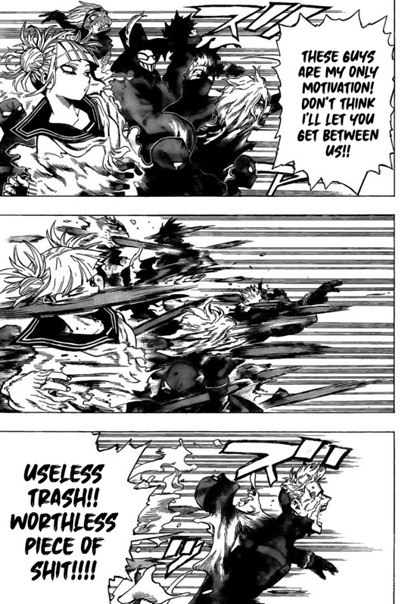
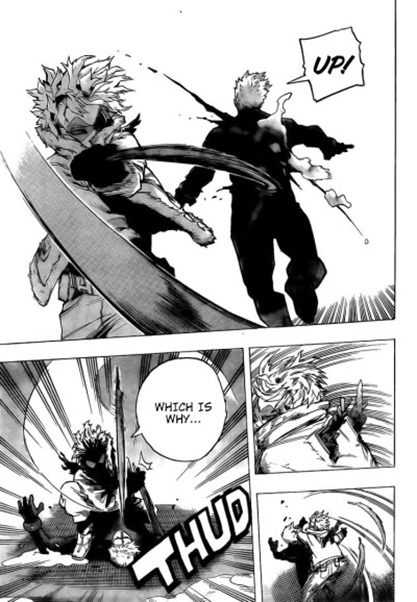
Now leaving aside the Hawks/sedation point, what happened next with Dabi’s entrance into the fight and using his powerful fire Quirk to push Hawks into a corner is often used as justification for Hawks’s killing blow, placed at a severe disadvantage and doing anything to prevent Twice’s escape.
It’s a fair point at first but looking a little deeper I don’t think it stands up as a whole when going back to the Kaminari battle and later Chapters in the Manga.
Inasa Yoarashi, Quirk Whirlwind, introduced during the hero licensing exam:
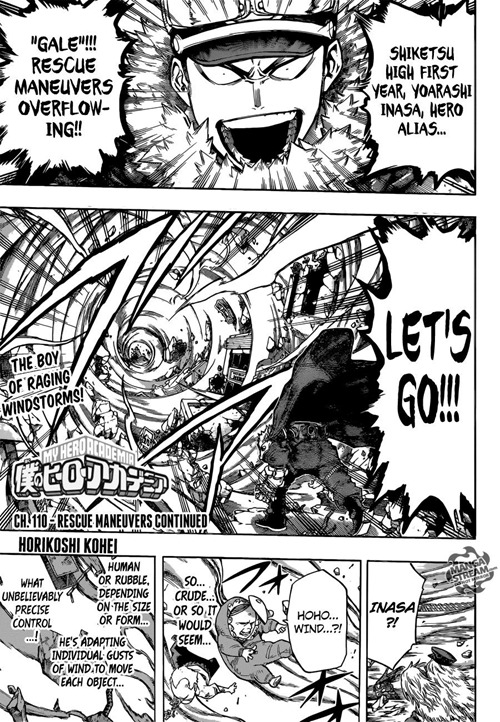
The scene depicted above shows Inasa using his wind Quirk to lift and manipulate a large number of people and debris (rubble), here using it for saving/rescue but could also reasonably be used in combat against a large number of opponents.
And later in the Manga this is exactly what happens:
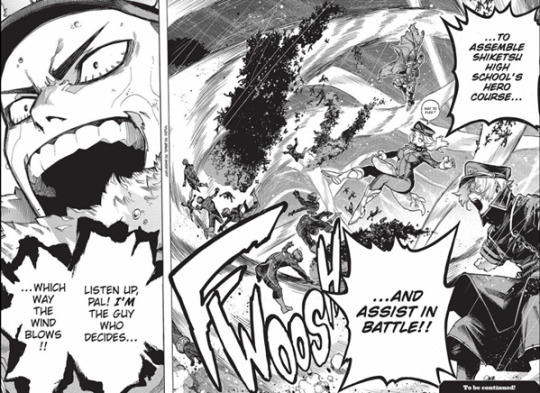
Inasa uses his Quirk to great effect against the clone parade.
While true that this wasn’t enough to fully stop the parade in its entirety, in the Hawks/Twice situation it would have been more than efficient in containing twice, and even more than that would have subverted Dabi’s threat as well.
Though Dabi’s flames are more powerful than Shoto’s, there’s no reason to assume that Inasa’s quirk couldn’t have thrown off the flames similar to what happened during the Exam. And if that’s not enough of an edge in this fight, there’s one other person who’d be ideal:
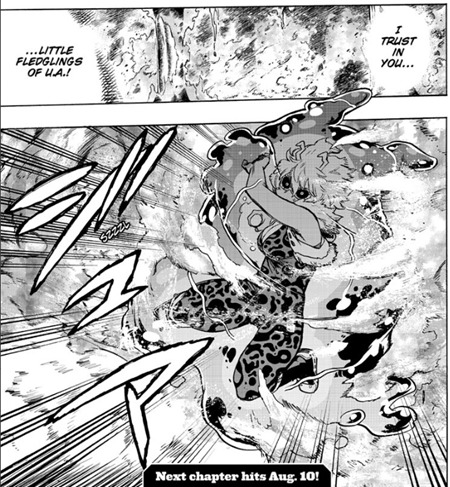
Mina Ashido, Quirk Acid, apparently very fire proof. (This was really cool; I wish more had been done with this aspect of Mina’s abilities.)
Mina’s fire resistance paired with her physical skills/mobility would be a great asset in a fight against Dabi, could it defeat him? Probably not, but when taken all together: Hawks easily defeating twice before the parade can form, Inasa being backup in case this failed to contain the clones, and if Dabi showed up the pairing of Inasa and Mina together having pretty good odds against Dabi with their Quirks naturally countering his, it’s a pretty good plan.
But was it possible given the timing and circumstances? I think it was.
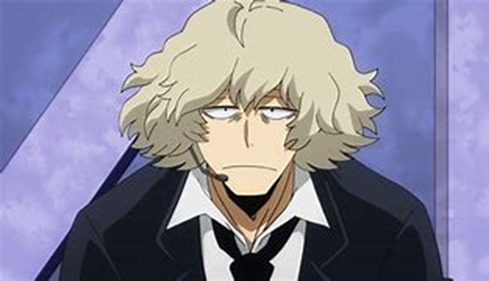
The licensing exam was common hero knowledge, or at least government knowledge, the picture above showing Mera, a worker for the Hero Public Safety Commission, overseeing the event and directing it. And then was present later at the Remedial Course in the same position.
A hero (definitely a high ranking one) could have obtained information on the students and how they performed during, with Hawks and how well connected he is through hero society (doubly so through the hero commission), this should be easy, either by being present or viewing recorded info.
Mina’s resistance to fire wasn’t shown or mentioned until it was used to get through Dabi’s flames, but given her facial expression (lack of fear/surprise), it seems fine to assume that she didn’t just run into the fire and hope for the best that her Acid Man could take it. That’s a reasonable line of thought right? Though not revealed in present or flashback, there must have been some point before this where the ability was tested, because the scene wouldn’t really make sense otherwise.
The two being at the battle would be the next issue but given how quickly Tokoyami reached Hawks’s vicinity riding inside Fatgum, part of the first few waves of heroes advancing to the Paranormal liberation headquarters, traveling by running (Fatgum was doing the running, not slow but definitely not a hero known for his speed) on the ground, then entering the building by flight to get to Hawks to help him.

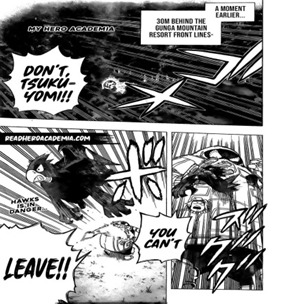
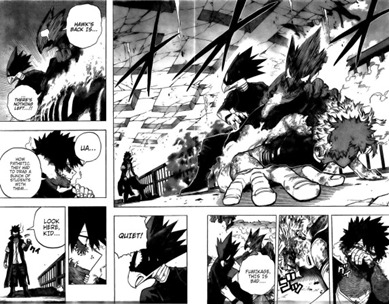
It’s also reasonable to assume that using Inasa’s ability to fly and carry others (Mina in this case) with him, the two could have reached the building, entered inside and gotten to Twice’s location at the time or even before Dabi had reached them. I feel there’s evidence for this because Inasa was able to beat Shoto Todoroki in terms of Speed in their first meeting, Shoto who can keep up with Deku and Bakugo.
Official Bnha Wiki Entry: The practical exam consisted of a marathon race which Inasa narrowly defeated Shoto in.
The heroes were already willing to put the students on the front lines to increase their odds (Kaminari), and the knowing of the student’s abilities was there to be known if looked for (Solidly proven in Inasa/license exam, less so in Mina ashido but still feasible).
Was there enough time to consider and prepare all of this? Definitely.
Hawks had more than a month, I think the timeline provides even more time than that, to obtain and plan anything that was needed for the coming conflict.
So all that being taken into consideration, why wasn’t any of this done? The Sedative option or the increased backup (Quirk counters) on the heroes side? Hawks isn’t stupid by any means so why wasn’t this thought out? I think the answer was given in one of the first descriptions of Hawks and his character:
“Hawks the hero that moves too fast.”
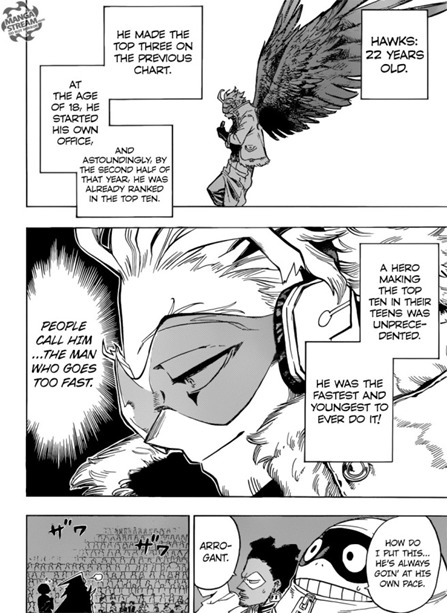
Hawks moved too quickly, not considering the full scope of his options in dealing with twice. The tools and strategic moves were there, he just didn’t make use of them. So looking at all the details, every character and scenario as a whole, Hawks didn’t “do what he had to do” and the death of Twice wasn’t necessary.
Hawks’s Conflict: past and present (2)
I was never a big fan of Hawks but I do see that his character is very complexed and layered, less so and being more straightforward in recent chapters but maybe that’ll change soon.
Hawks was conflicted during his confrontation with Twice but just as deeply as the fight or the nuance of the situation was Hawks’s inner conflict.

The confliction of the current self and the past self, the government spy and the child hero.
Some say that Hawks never intended to take Twice alive and that his intent was never to save him, which is true.
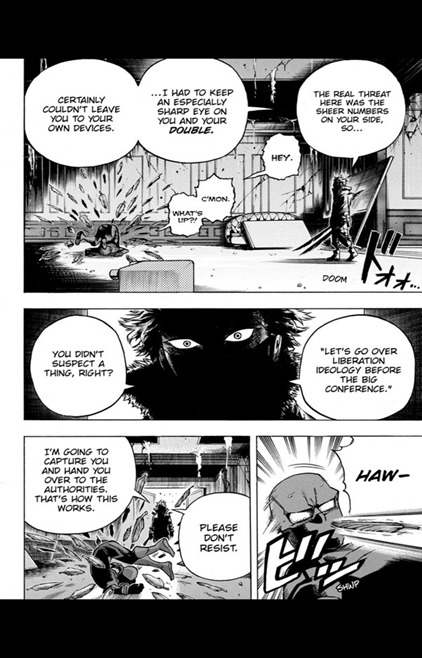
If Hawks really wanted Twice to back down from the fight (a fight Hawks claims he doesn’t want) then why would Hawks mock Twice like this?
It’s like he was trying to goad Twice into a fight in this scene because what other reason could Hawks have for saying it?
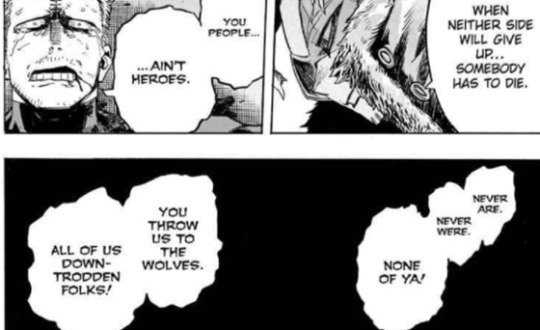
In the scene above Twice consistantly uses the word “us”, refering to those like himself who’ve been left “to the wolves” by hero society and heroes, by extension also talking about his closer friends in the League of Villains.
His friends who Hawks made no mention of trying to help at all, despite knowing how much Twice valued frienship and loyalty. There was no way Hawks could have seriously believed Twice would turn his back on the LOV, even if it was to save his own life. Twice confirms this in his own words later and Hawks isn’t surprised at all.
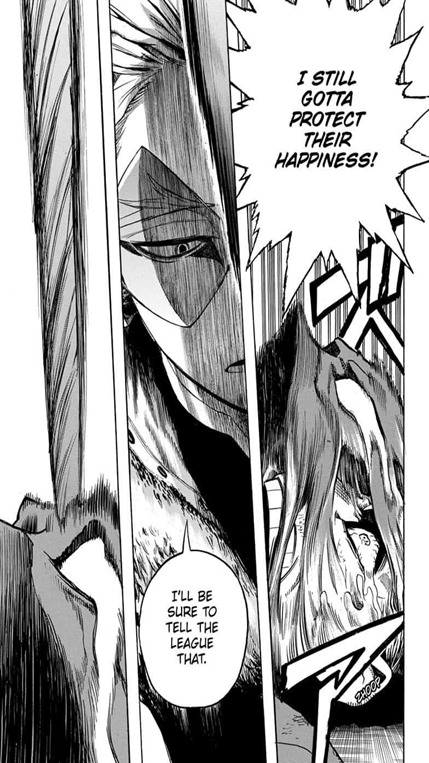
(Also side point: Twice was definitely not going to be given a fair shot at rehabilitation anyway, Hawks had no position or power to guarantee those words at all. Hero society has never been known for its nuance or understanding, a good example being evident in how Gentle criminal was treated after his arrest.
Gentle criminal was barely what could be considered a villain, even the police admitting as much in the interrogation after Gentle’s capture at UA. And from the way the conversation ended in the chapter it seemed like Gentle was going to be given a second chance or at least some form of lenience, for the tame nature of his crimes and for turning himself in.
But that clearly didn’t happen.
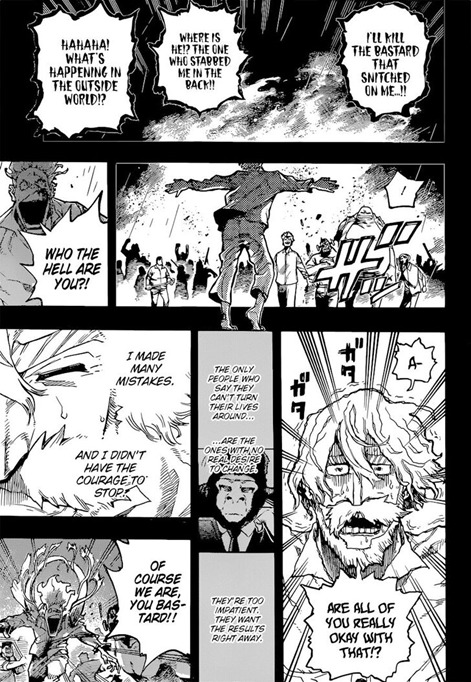
Gentle Criminal was put in prison, incarcerated alongside others who are clearly much more violent offenders than he ever was. Them not knowing who Gentle is at first look does call into question how much contact he had with the other inmates but that really doesn’t make it any better even if he didn’t.
Gentle criminal’s reasons for stopping the other inmates is a nice sentiment, but considering that he wasn’t much of a villain to start with and how he was treated before/after his arrest, the message falls a little flat. That the downtrodden must fight and suffer for the sake of a system that doesn’t care about them and only rewards them after they’ve “done the right thing” which really translates to fight for the system.
Looking back at Twice and the crimes that he had already committed, coupled with his mental state, and the fact that Hero Society is not in any way nuanced, it’s hard to see Hawks’s words of rehabilitation and a second chance if he comes quietly as anything other than a lie at worst or a delusion at best (I think it’s the latter.))
Back to Hawks
Some others say that Hawks did intend to try to save Twice, in his own way or at least make the attempt, which looking at those points made does seem true at the same time.

Hawks did say that he didn’t want to fight Twice and his expression does look conflicted leading to the impression that what he’s saying is his truth.
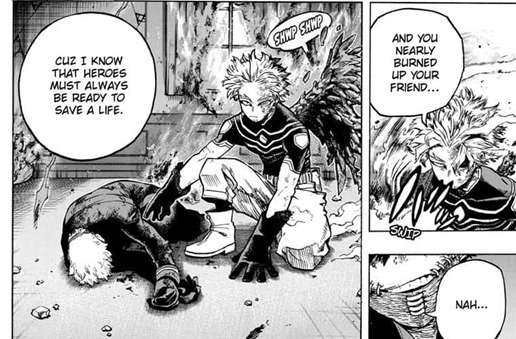
And Hawks did save Twice from Dabi’s flames, protecting him, the action itself is undeniable.
Put together this is why there appears to be so much conflict around these scenes, because both points of view are by evidence true.
And the reason why that is I think, is because Hawks himself is conflicted at his core, his origin and present.
Allmight describes great heroism present in heroes like this: “There are stories about every hero, how they became great. Most have one thing in common, their bodies moved before they had a chance to think, almost on their own. And today, that’s what happened to you.”
Sir Nighteye gives a very different description, calling such heroism madness of its own, especially in Allmight and Deku.
Hawks embodies these statements or rather he did.
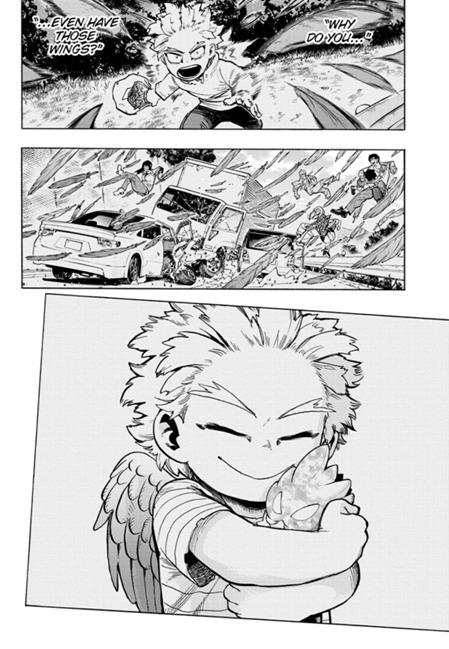
Hawks did have that same Heroic ‘instict’ to save others, to be a Hero in its purest form, wanting to be a bright light shining for others.
But that was who Hawks was, not who he presently is.
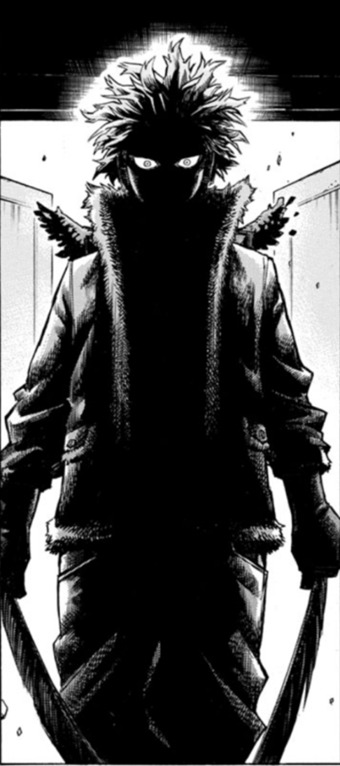
Only a vestige remains of Hawks’s true desire to save others, as evident by how he did save Twice in that instant of Dabi’s attack and that’s the conflict.
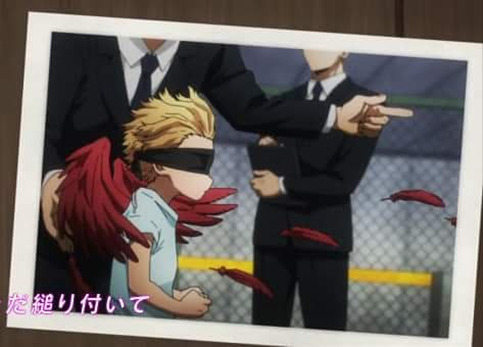
People are shaped by their experiences and what they are taught to believe, dictating most of their actions. Hawks was raised/trained/manipulated from a very young age to be an asset for Hero society, so much so that the possible deaths of innocent people are something he’s meant to shrug off for the sake of the “greater Good”.

Hawks goes along with this, part of which included the High-end vs Endeavor fight, an instance that if Endeavor hadn’t gone “Plus Ultra!” or if the Nomu had taken the time to finish him off, could have resulted in an unknown number of hero and civilian deaths.
That uncaring willingness to sacrifice the lives of others, even those you claim to care about, to achieve a greater goal.
The manipulation of a young child to believe and act a certain way into adulthood, while de-valuing everything else and using them as a weapon against your enemies.
This sounds familiar right? The Master(s) and the student.
And in the end, due to Hawks’s own lack of planning, his conflicted inner selves, the manipulation/conditioning that he’s been through all this time, and the present situation that it all resulted in…

So while I would say that what happened was partially Hawks fault, I wouldn’t say that it was his entire fault, because when someone is made to believe in a certain way of doing things, even more so when it’s since childhood, it can be extremely difficult for them to see and consider options outside of that Box.
End + Afterword
But then scenes like this happened:

This ^ is not a good thing, no matter the framing (though the anime does make it more clear as a negative), because this line embodies a central (likely fatal) flaw in the hero side.
“Optimistic to a fault” isn’t going to help things, the aspects of society that creates villains and wrecks heroes.
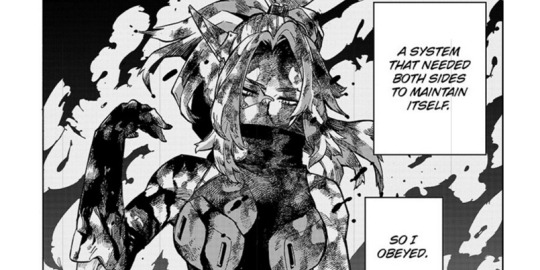
Lady Nagant was a hero (Assassin) that worked for the hero commission, operating during Allmight’s “Era of Peace” killing more than a few innocent people.
And they were (presently) innocent people, corrupt heroes whose crimes were never clearly stated and villains planning on committing “acts of terror” also never really described.
And no matter what their acts/crimes would have been, discreetly assassinating them to maintain a false facade of Peace and flawless justice, hero society was right to be called a phony illusion by L. Nagant.
Though the hero commission was wounded by a clone of Re-destro, it isn’t gone, Mera the blonde Commission worker from above is currently acting head.
Coupled with this scene:
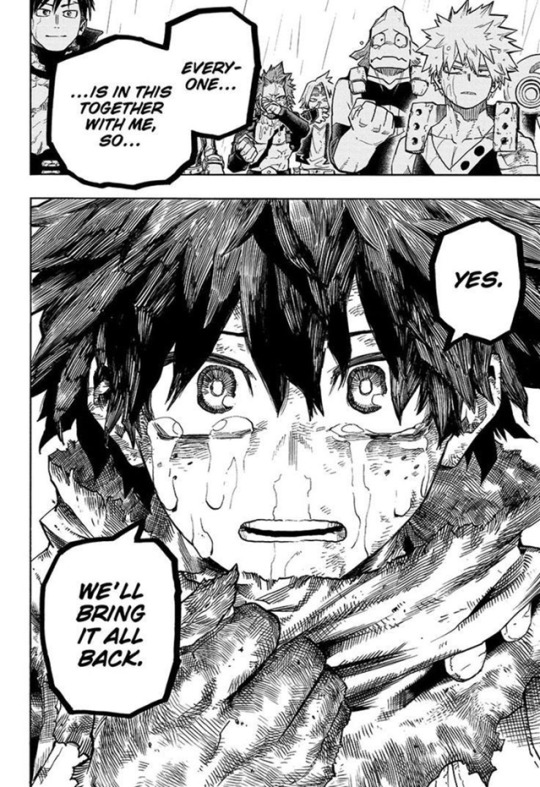
This ^ probably isn’t a good thing either, again despite the framing, because nothing has been done to prevent the faults of the past from reappearing in the future.
How does this relate back to Hawks?
Hawks, like most of the other heroes in the series, can’t accept the fact that there are big problems in their society and way of doing things.
And the only change they do seem willing to accept is the kind that benefits them:
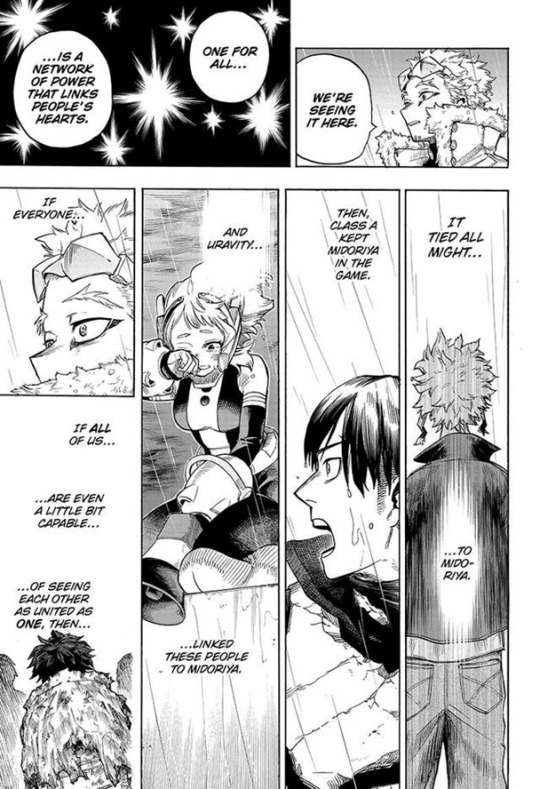
This ^ scene here is…mostly a good thing, though with some very important parts missing.
Ochako’s speech was very sweet but while it did inspire the civilians to help (which was really just letting the heroes stay in their own shelter and not abandoning a kid that has fought to protect them all this time), the speech was still centered around the heroes and what they need, not any other victims of hero society (although Ochako did consider that inwardly and later, that was good).
Getting to the final point of this meta: Just like Lady Nagant who came before Hawks and probably like another downtrodden, easily manipulated child that will come after him (If Deku really does succeed and bring it all back), Hawks is a part of the hero system that does the right and wrong things for the sake of saving others but because of their inability to accept the darker truths of that system and it’s failings, they’re not really saving anyone at all.
(Will make another Meta expanding on this, the Villains/hero society/civilians and the Quirk singularity Theory at a later date)
To be continued…
#bnha#bnha spoilers#bnha meta#mha meta#bnha hawks#bnha twice#takami keigo#jin bubaigawara#hero society
70 notes
·
View notes